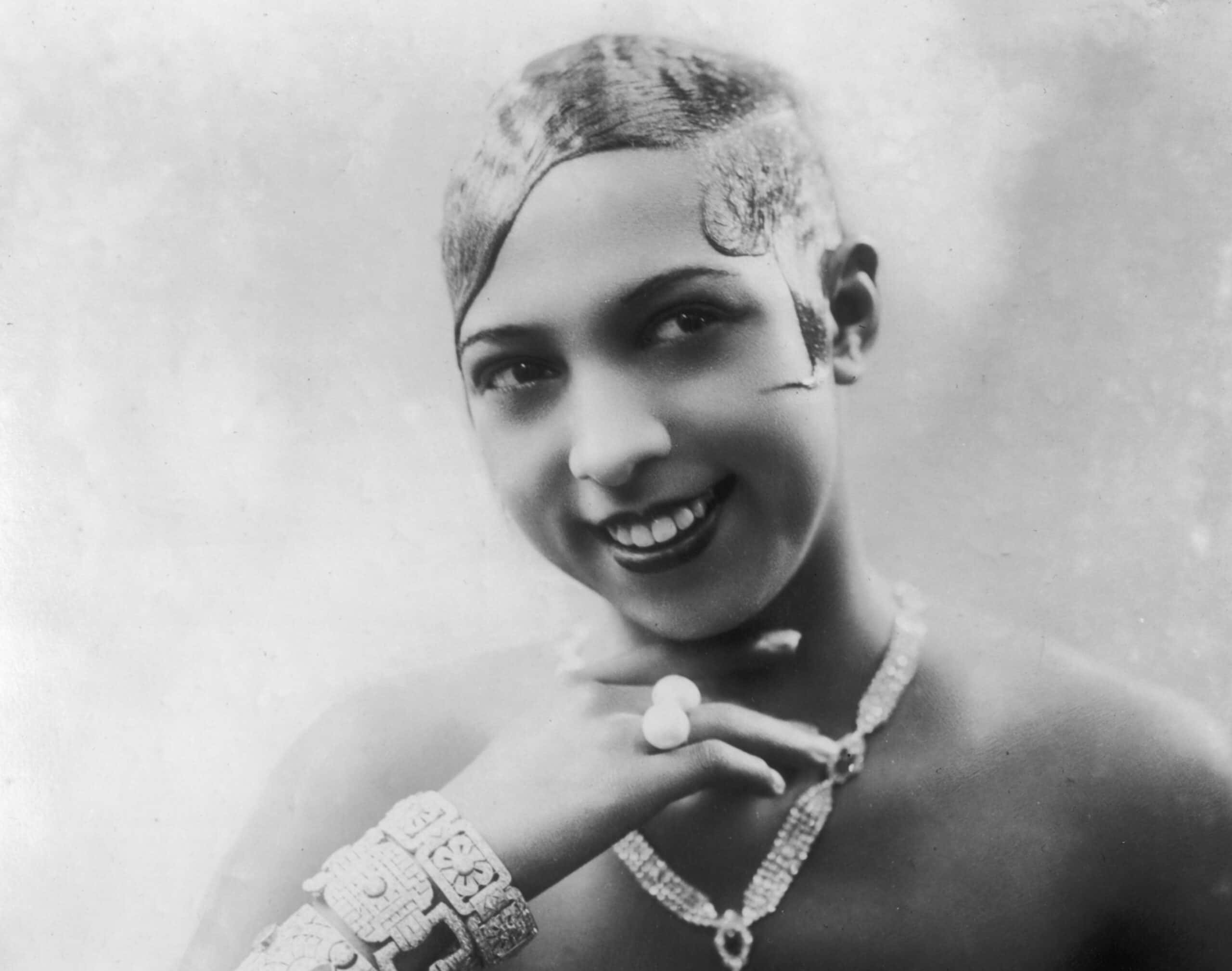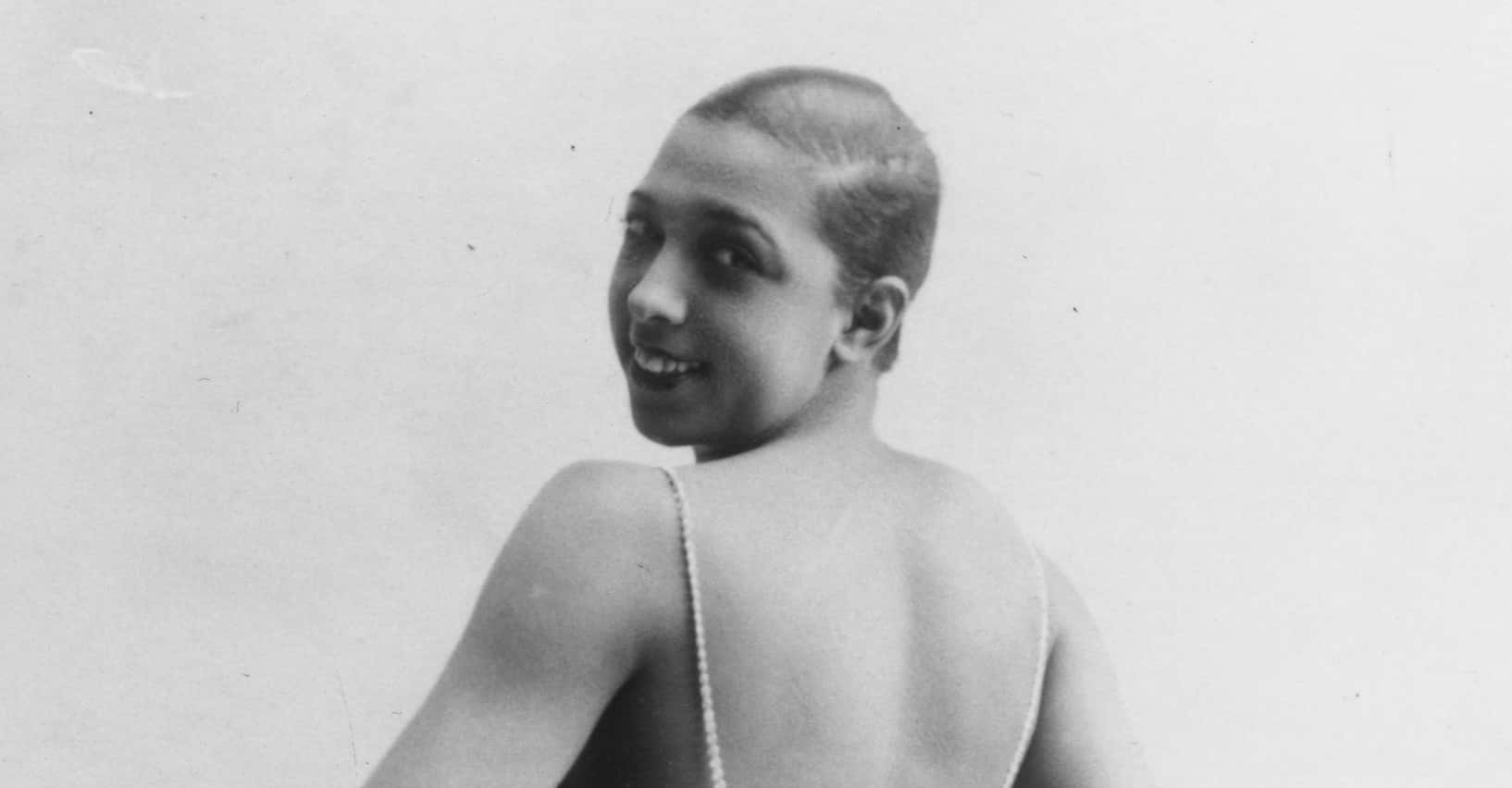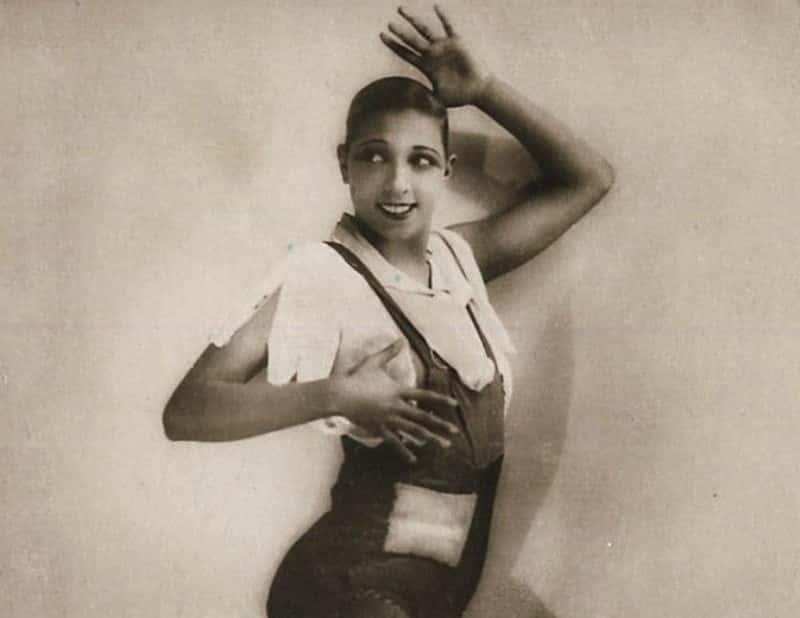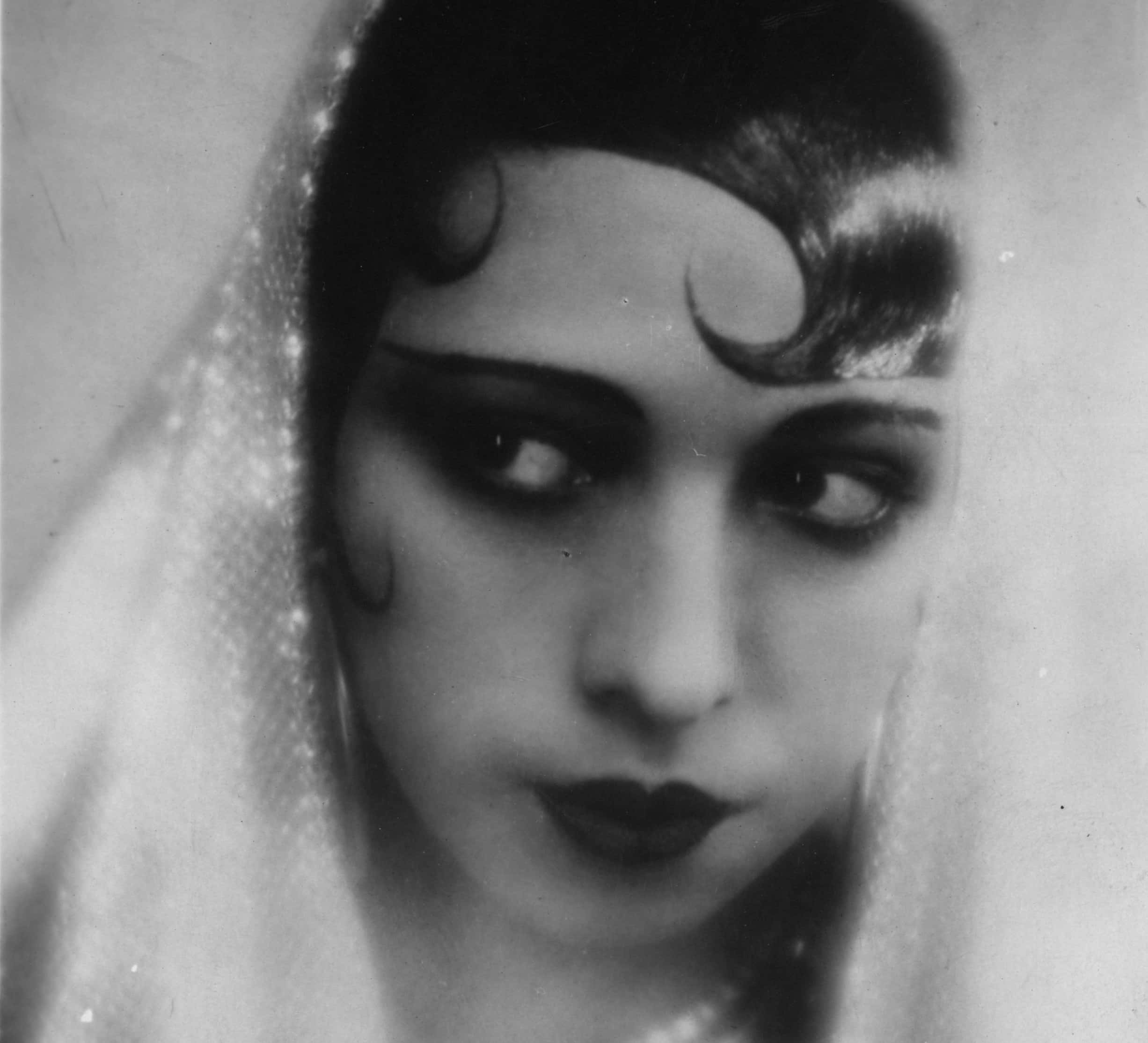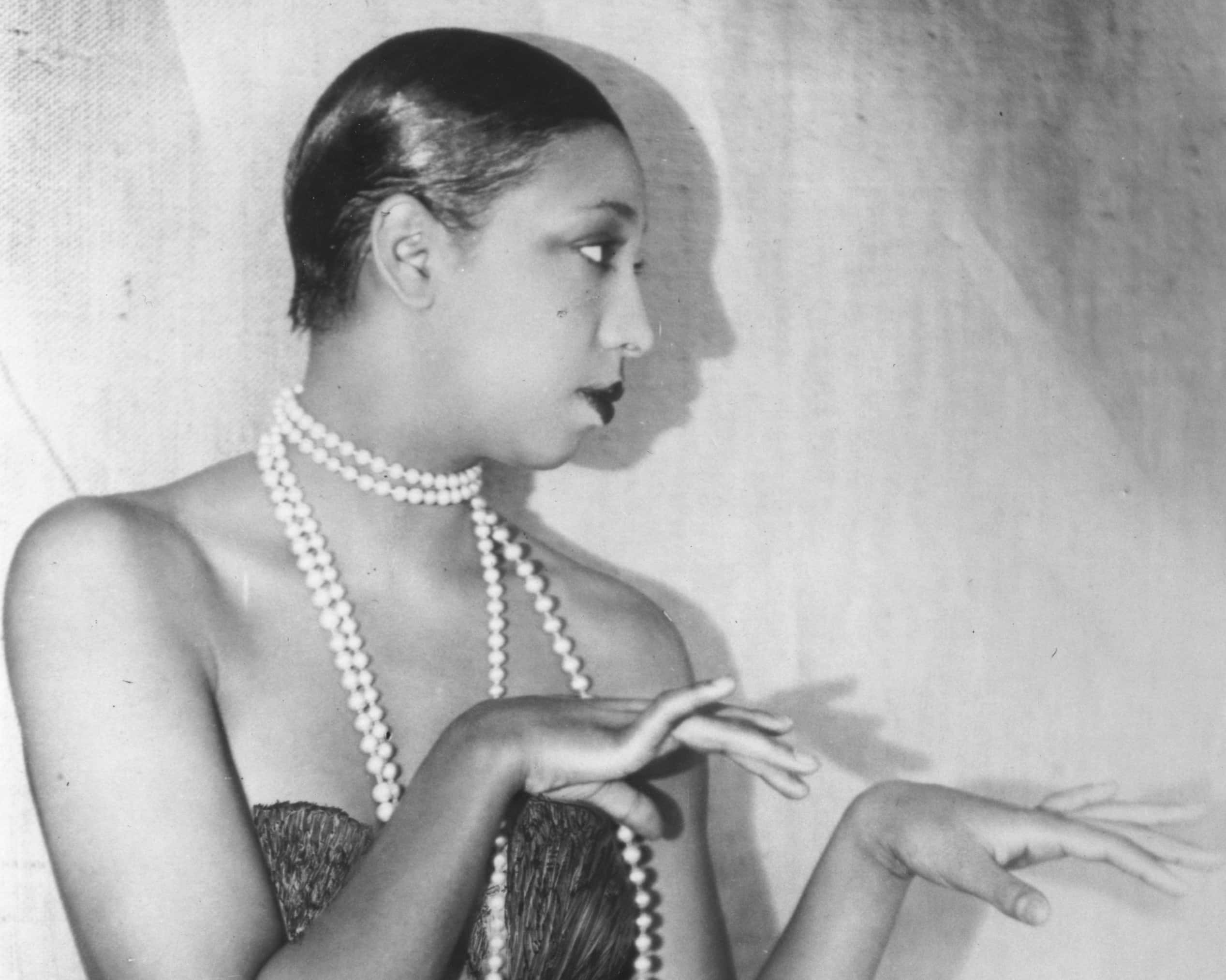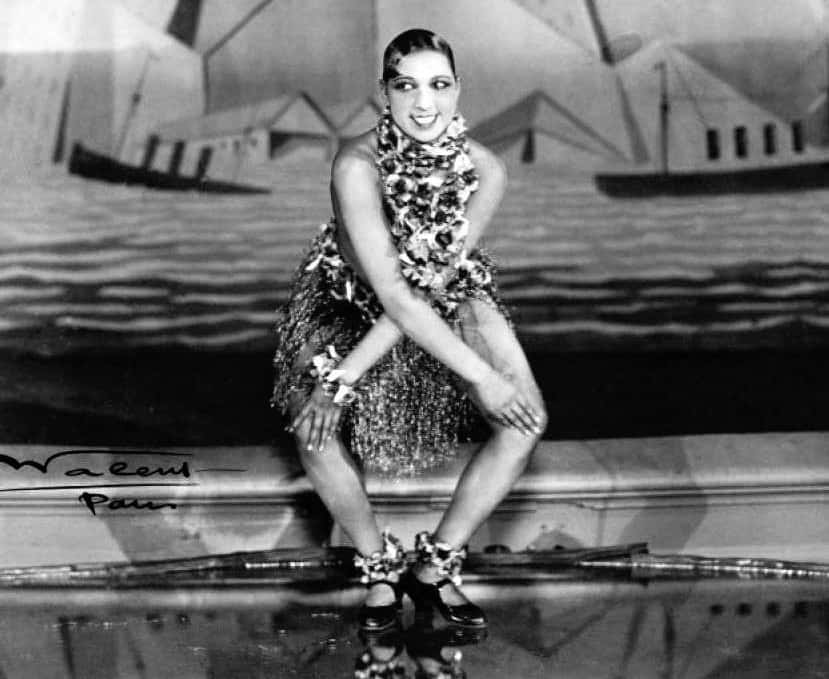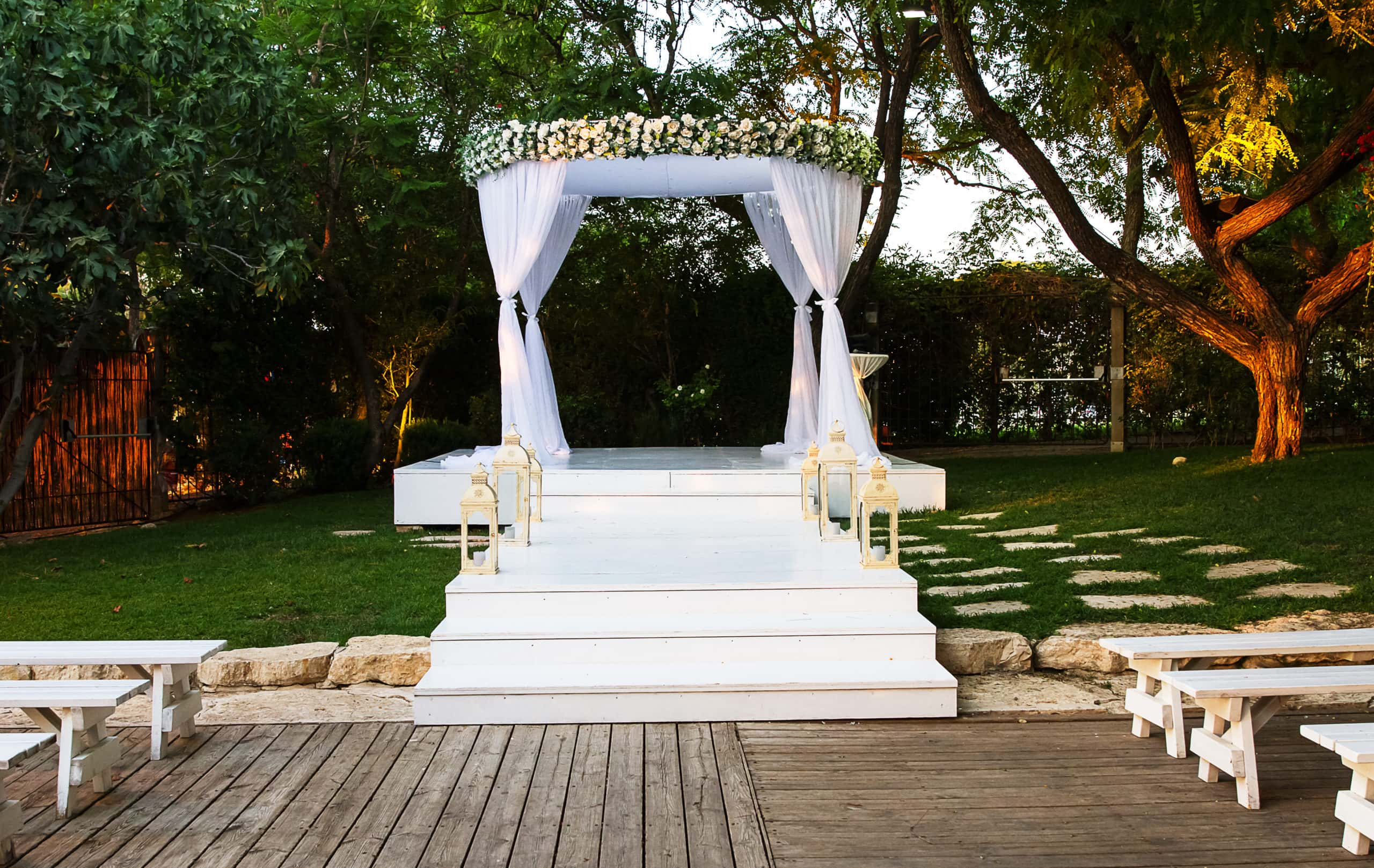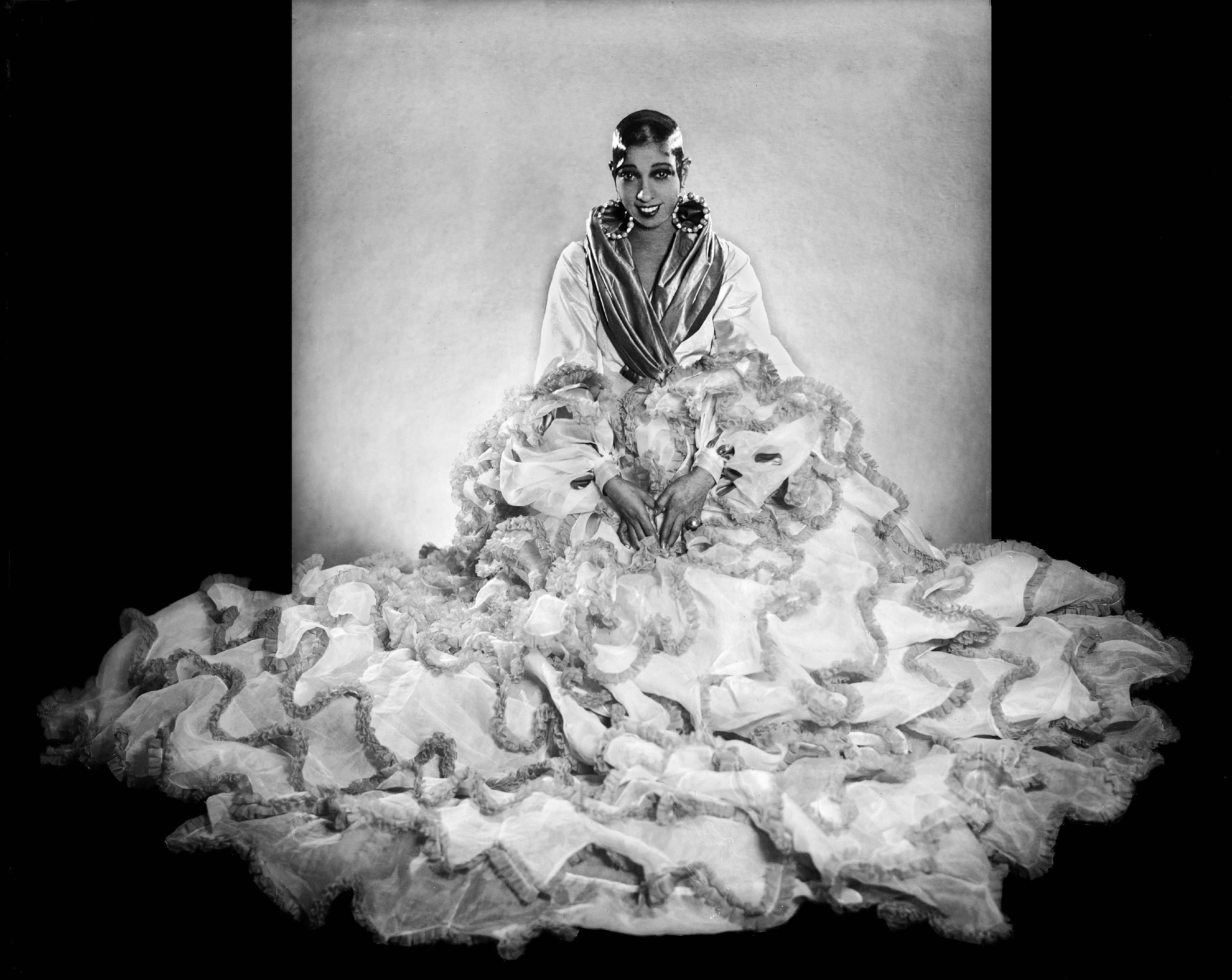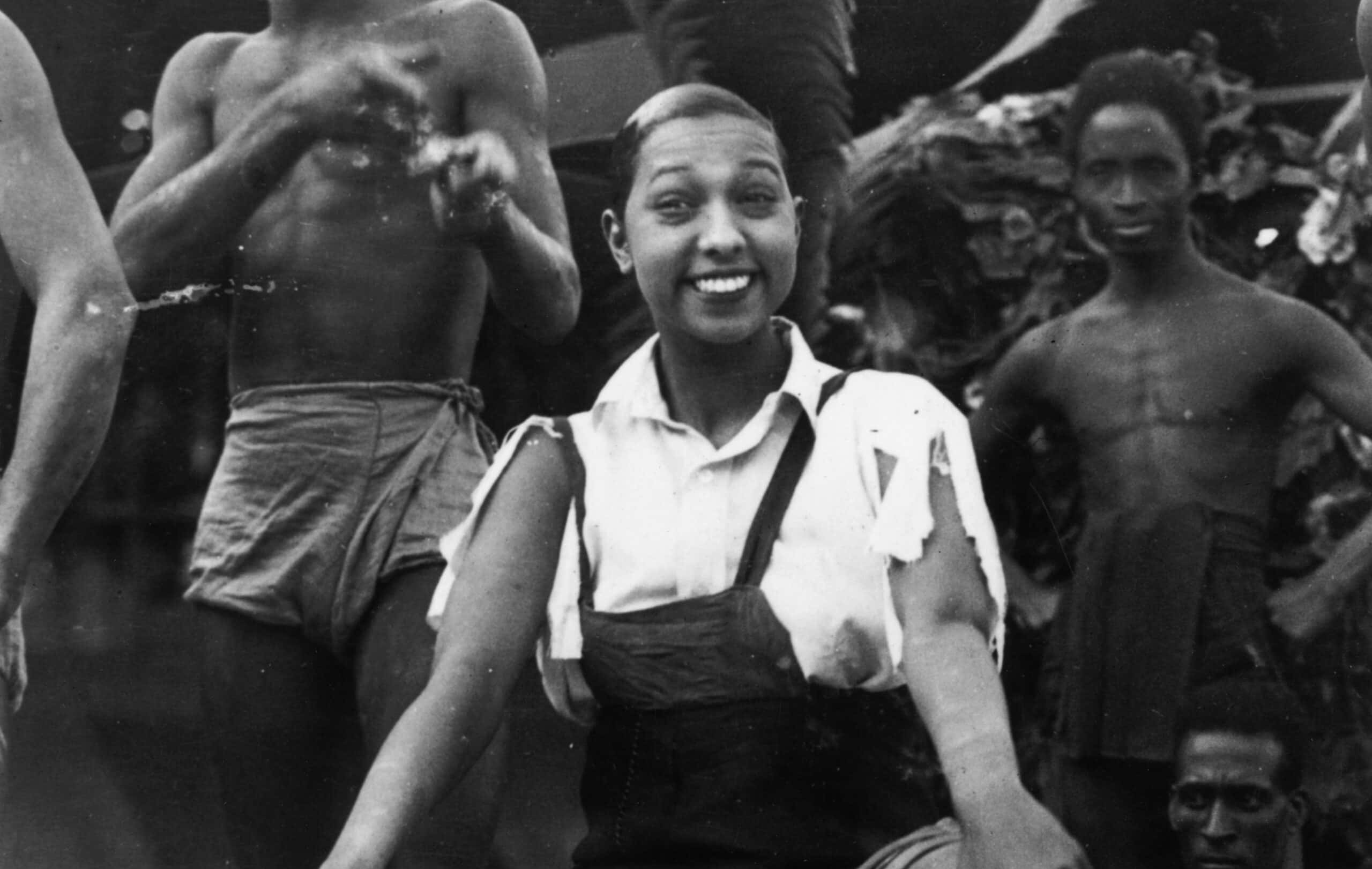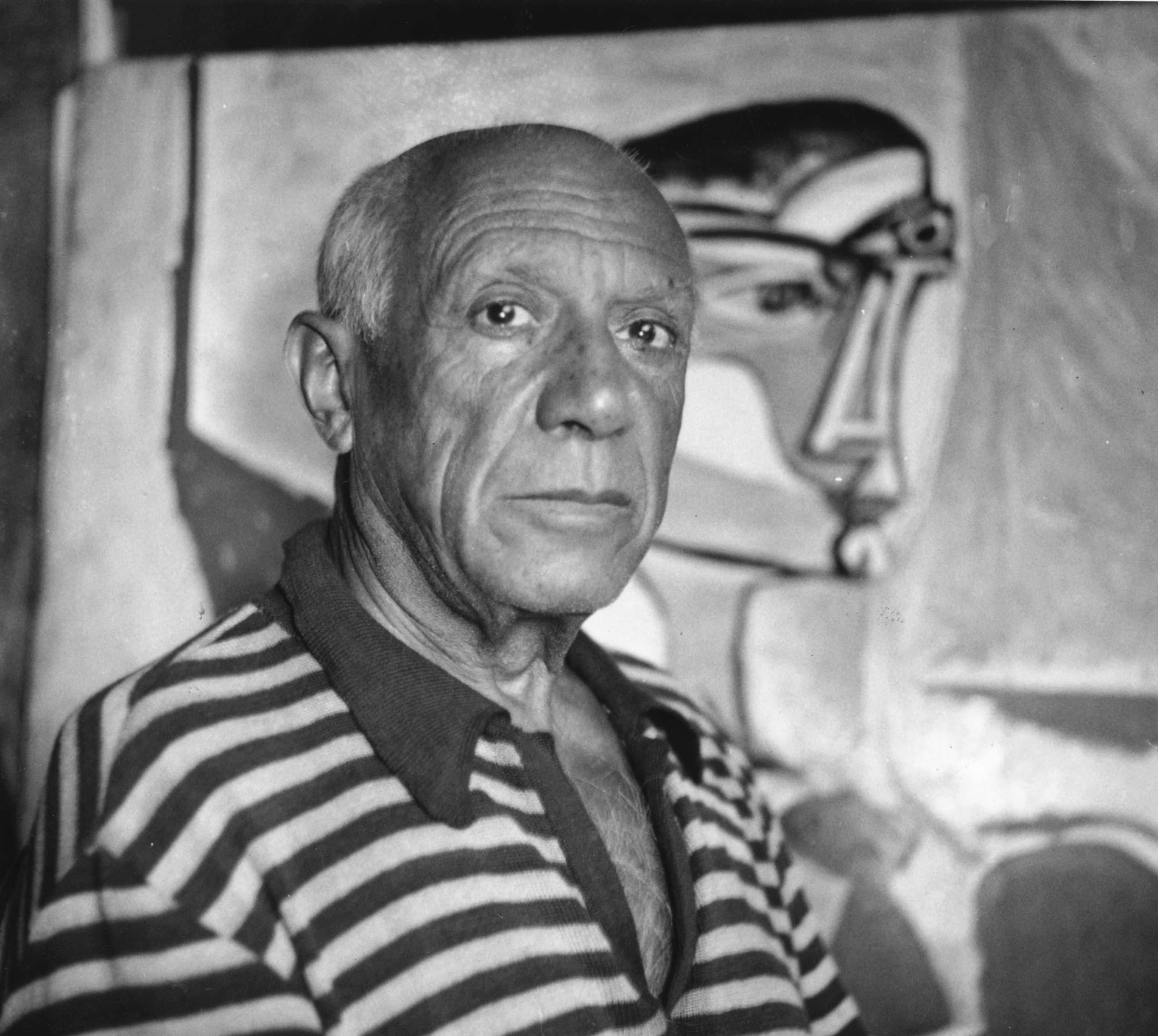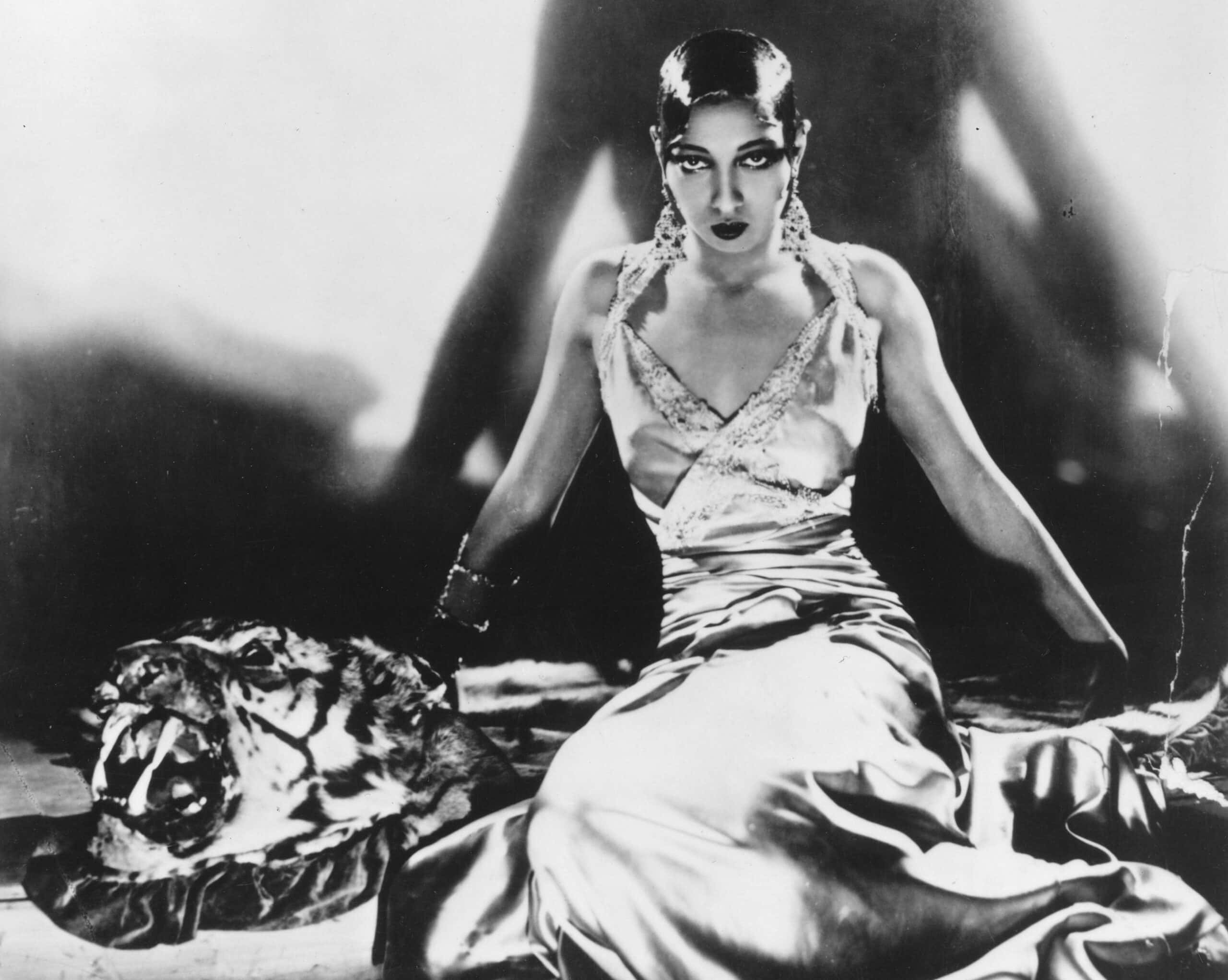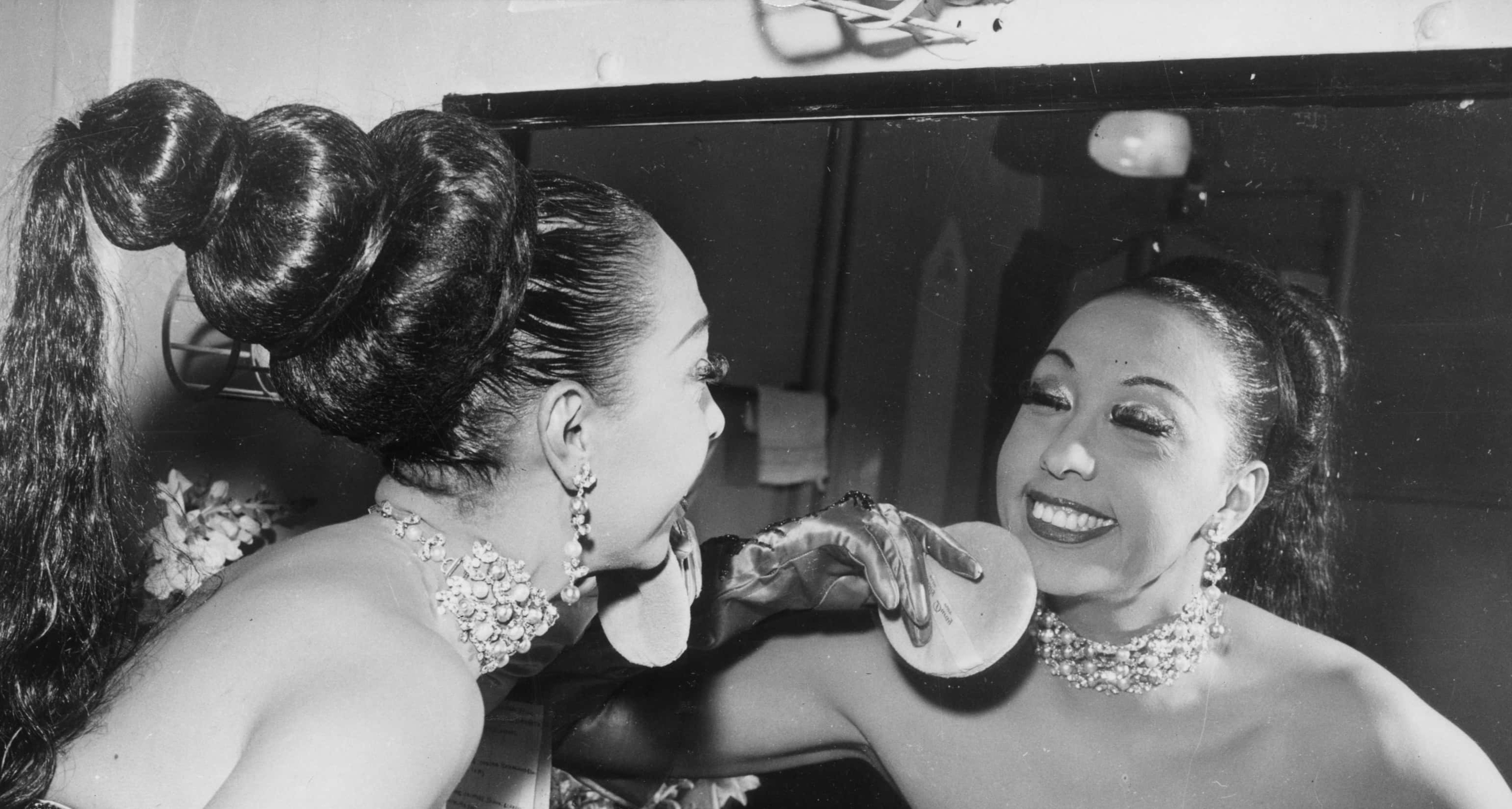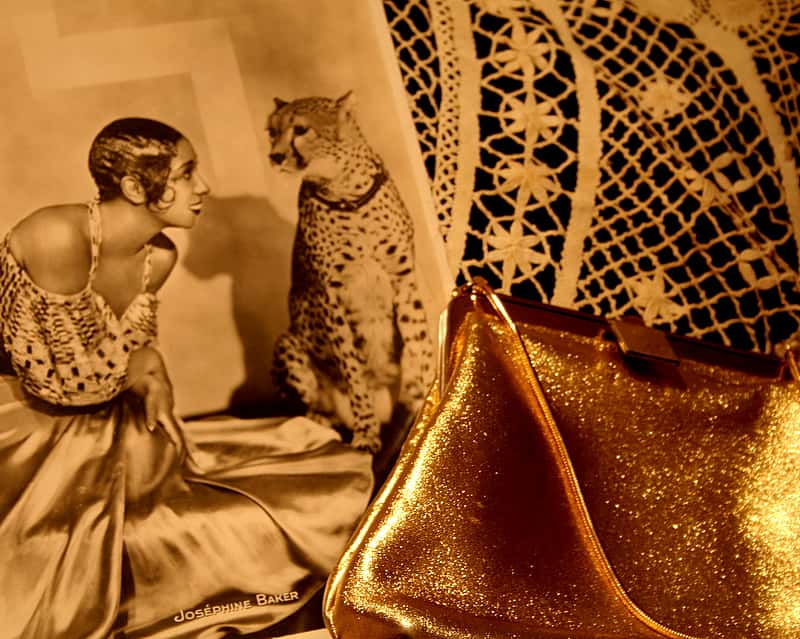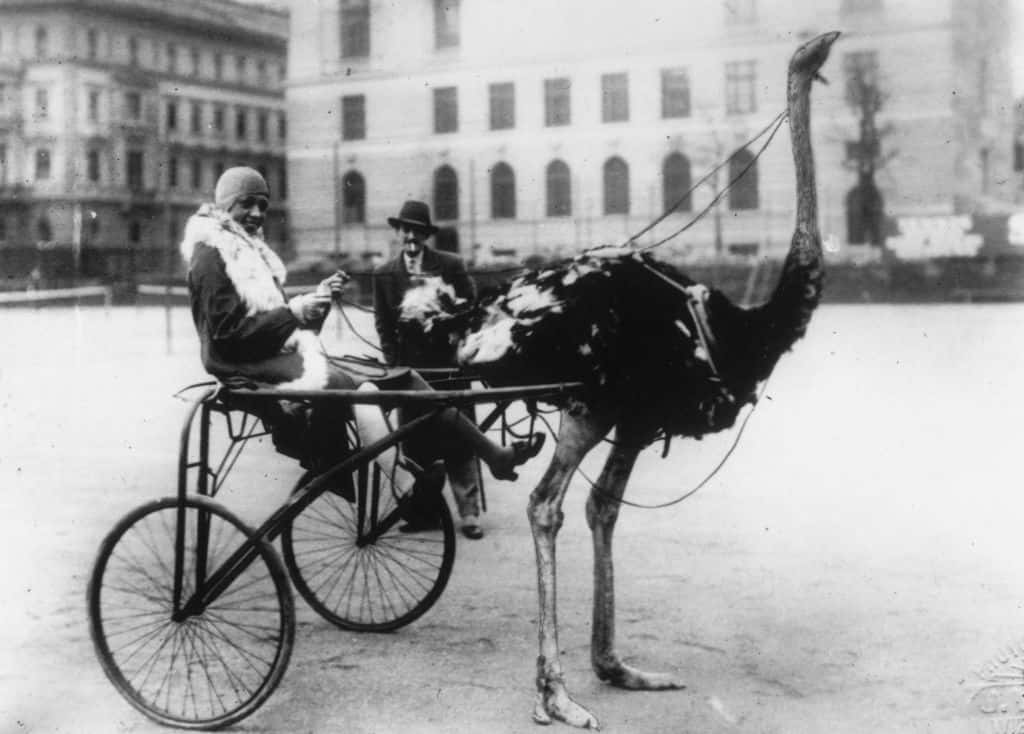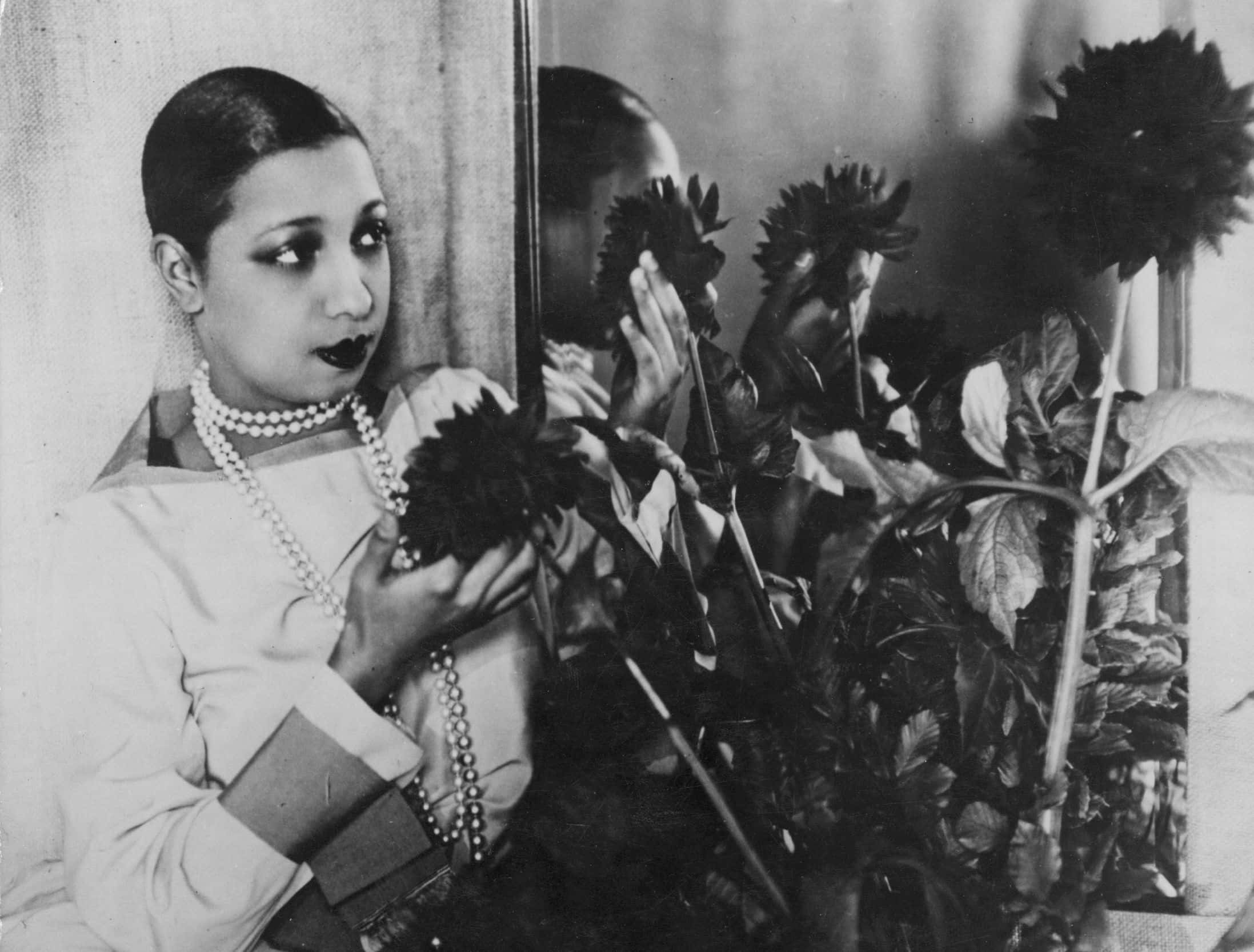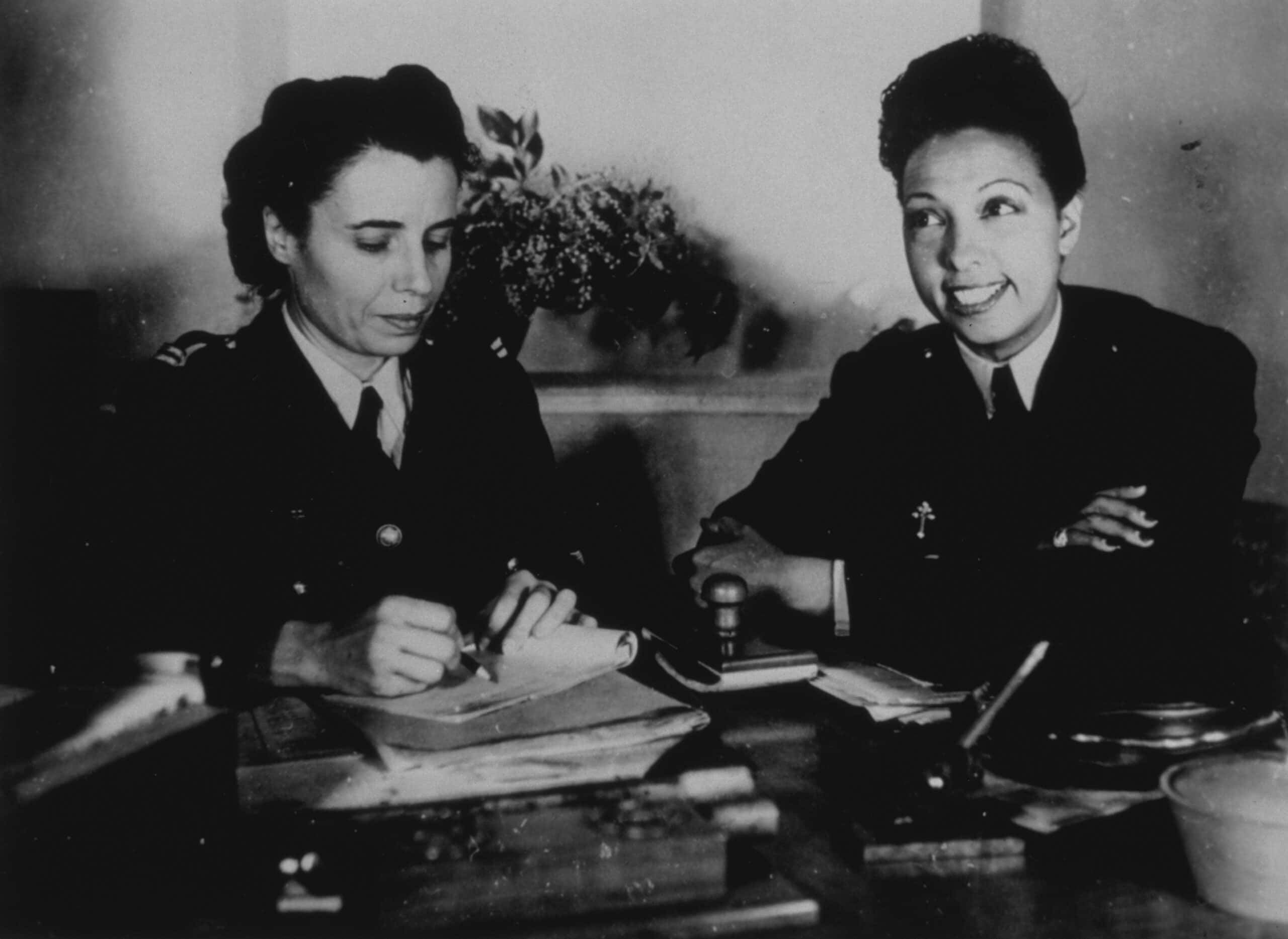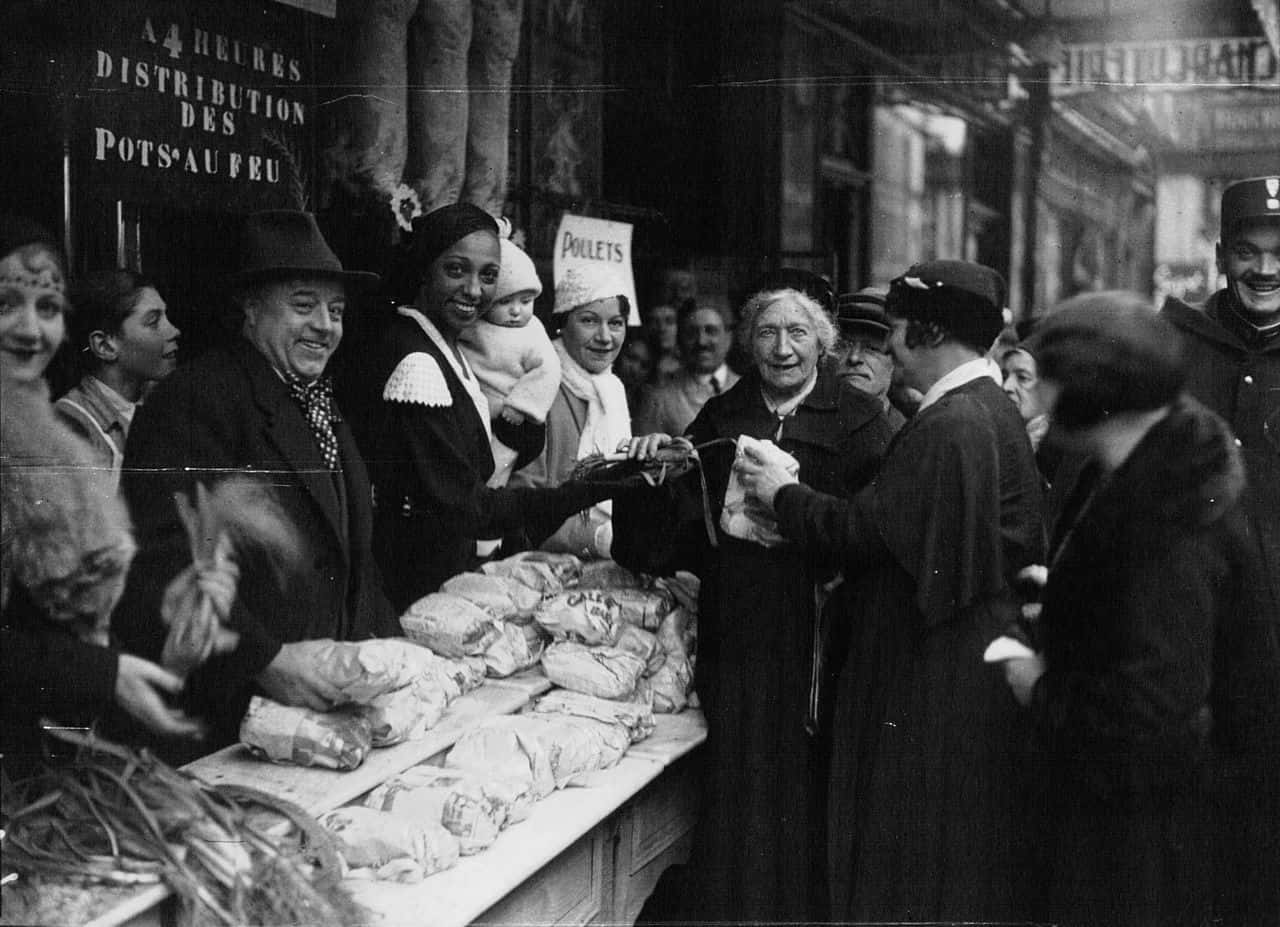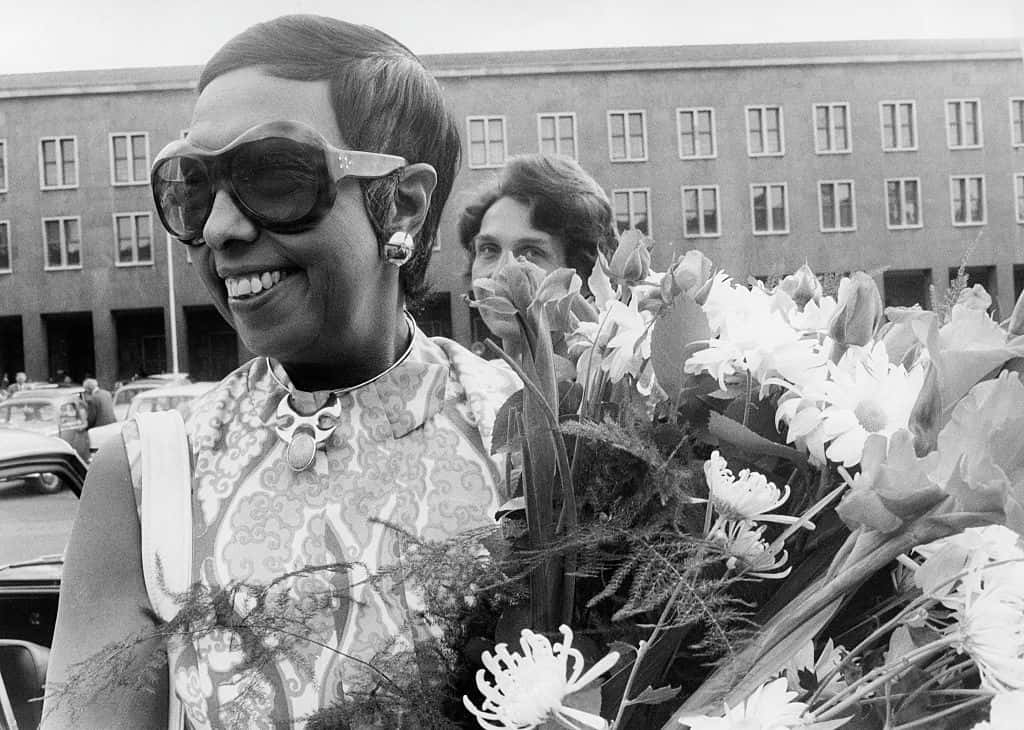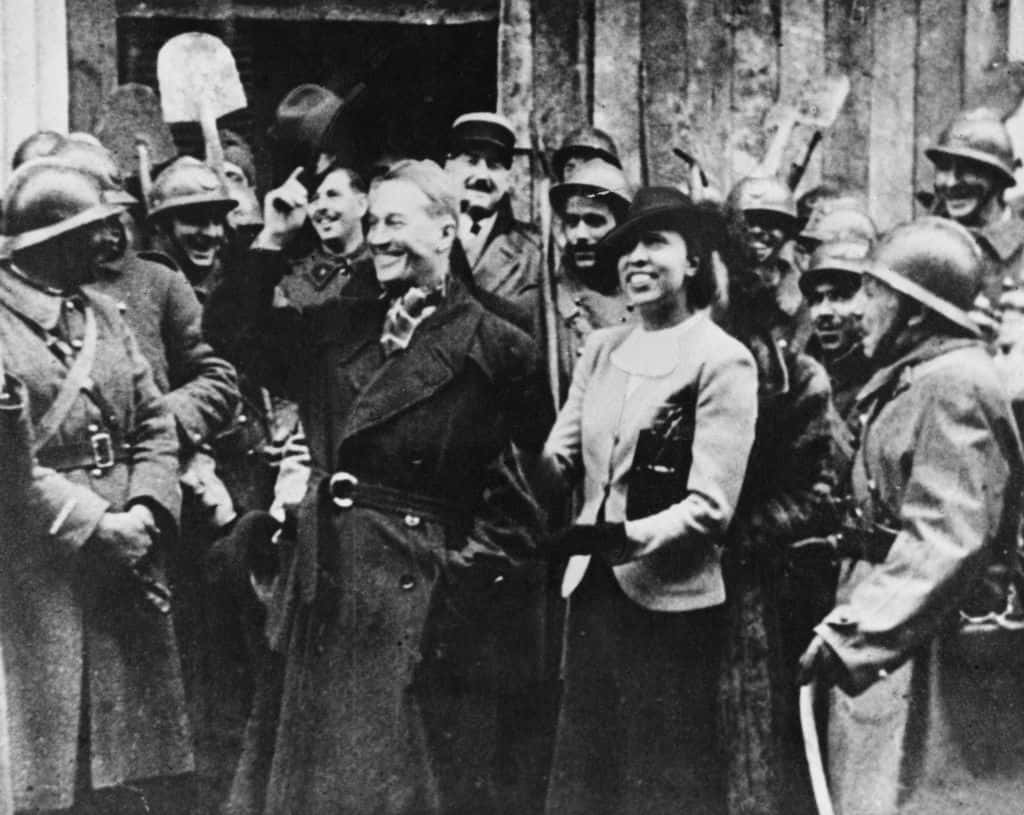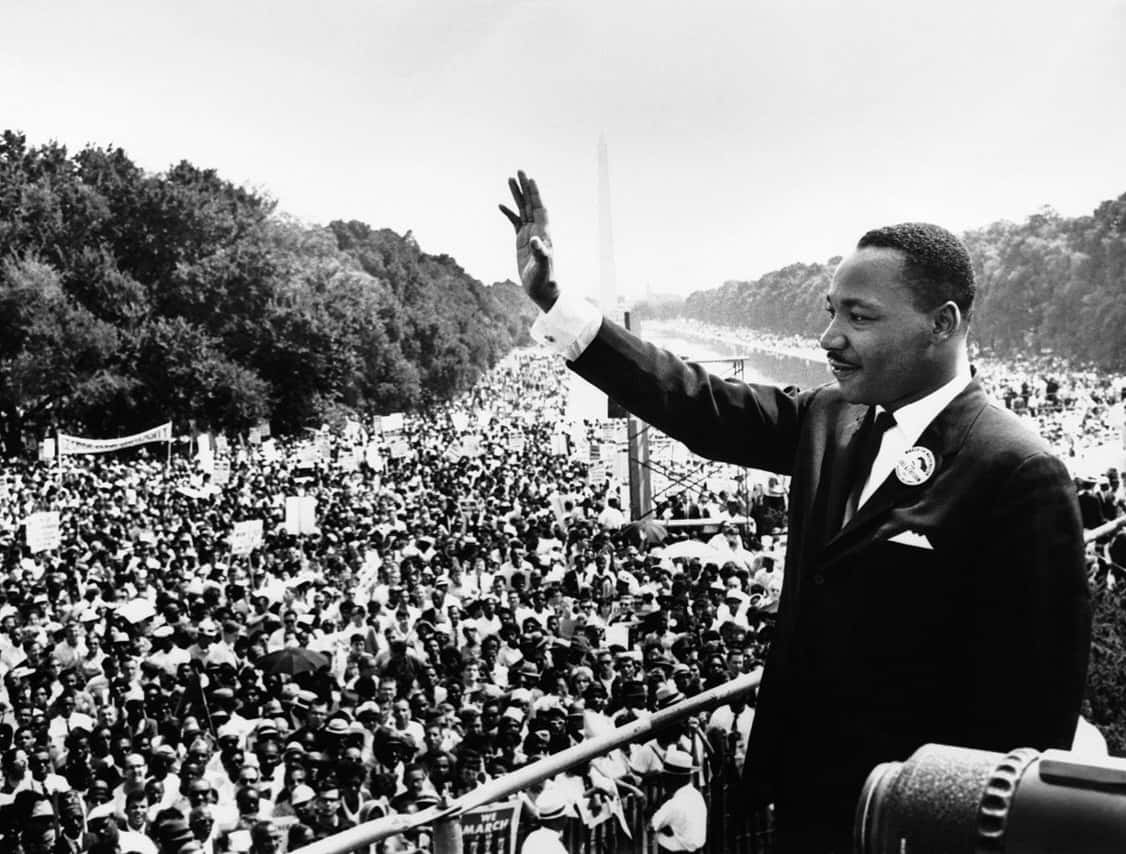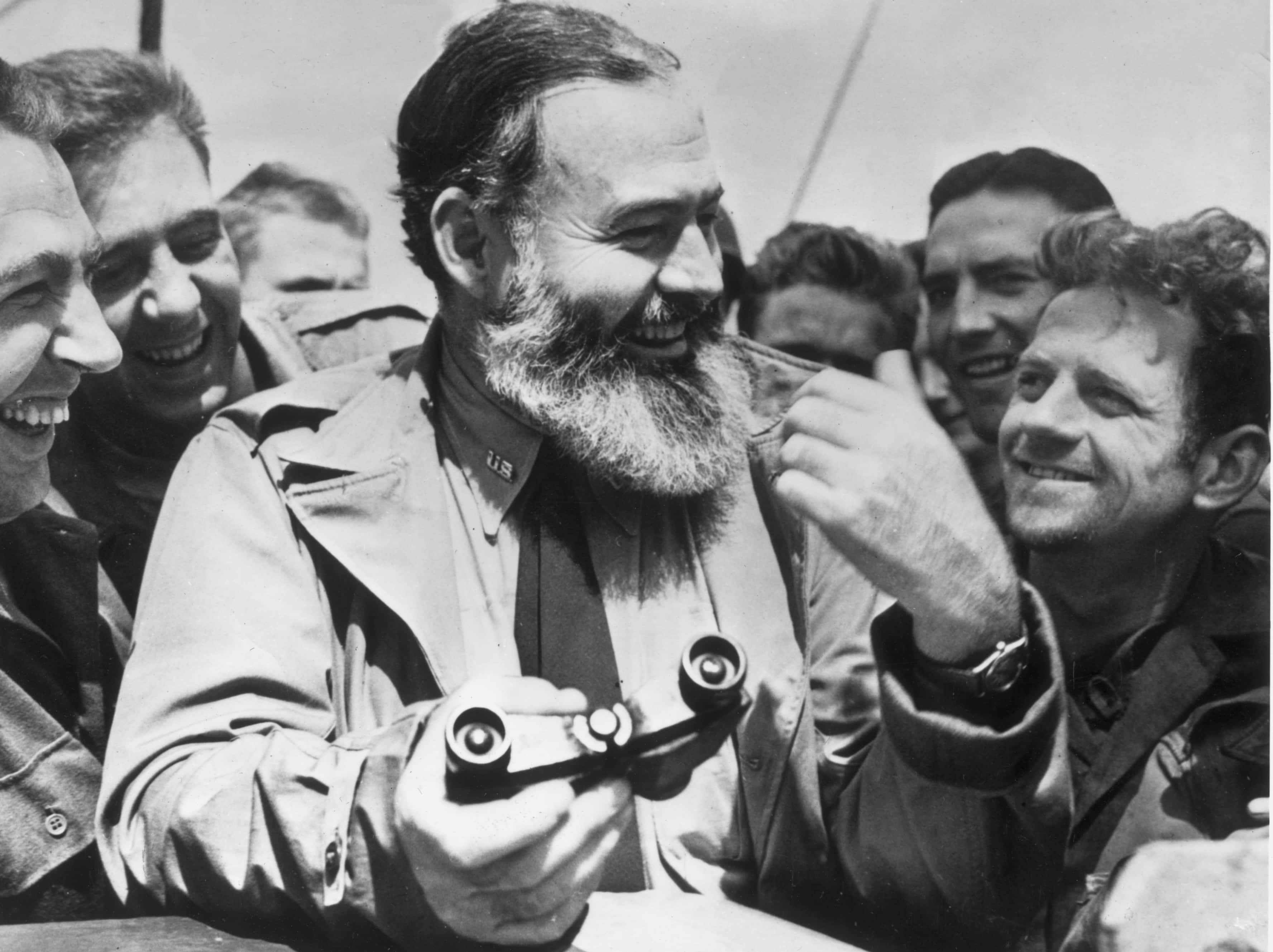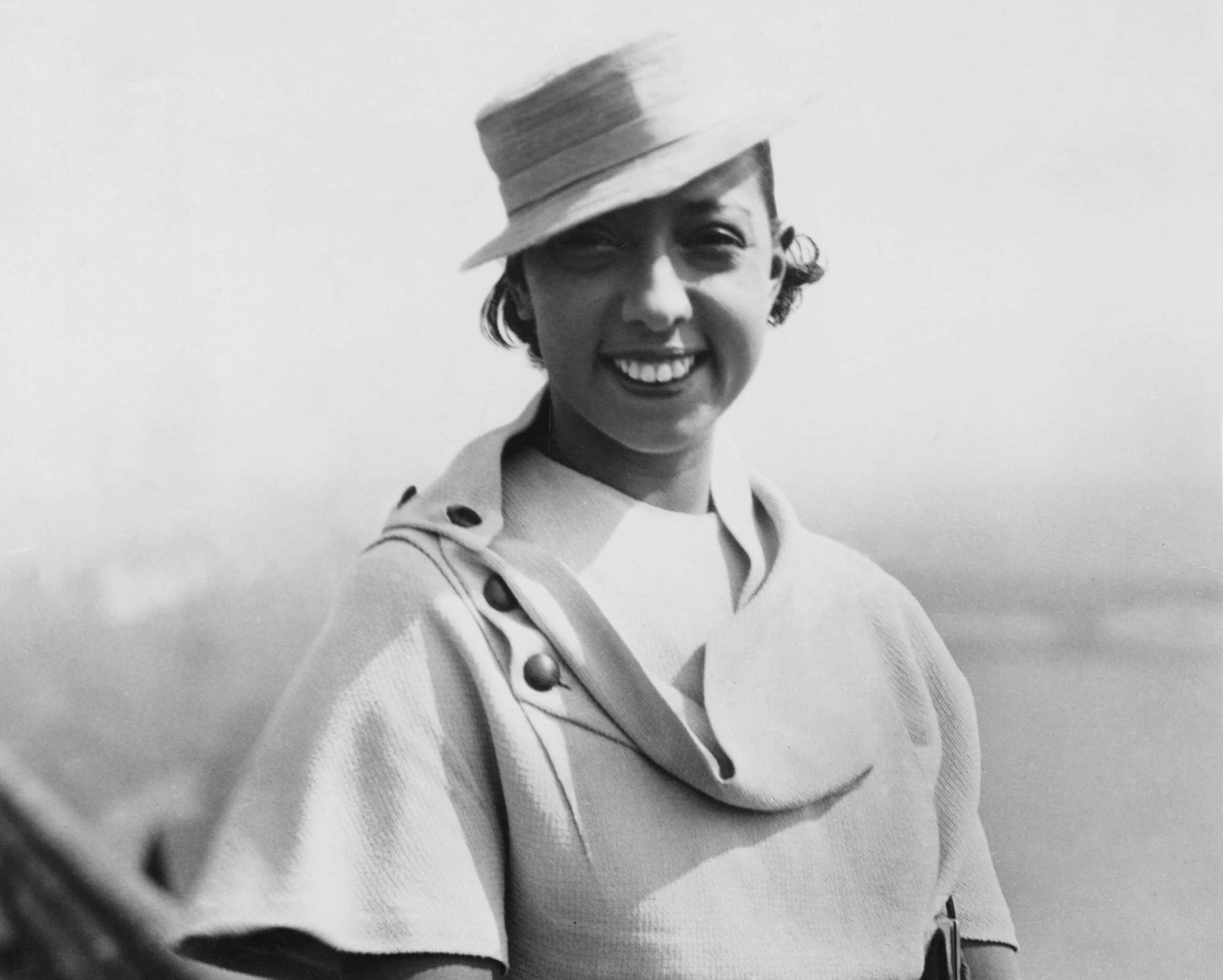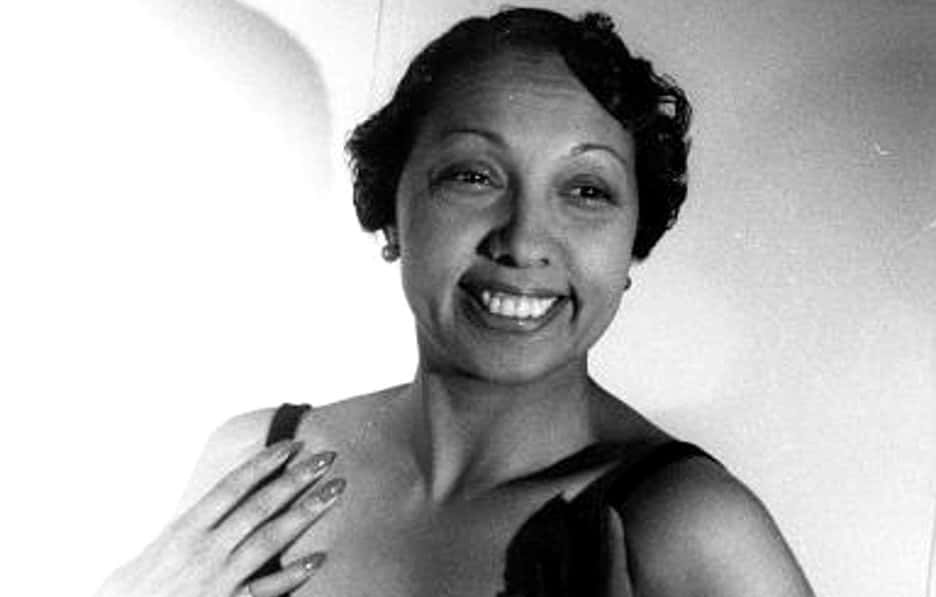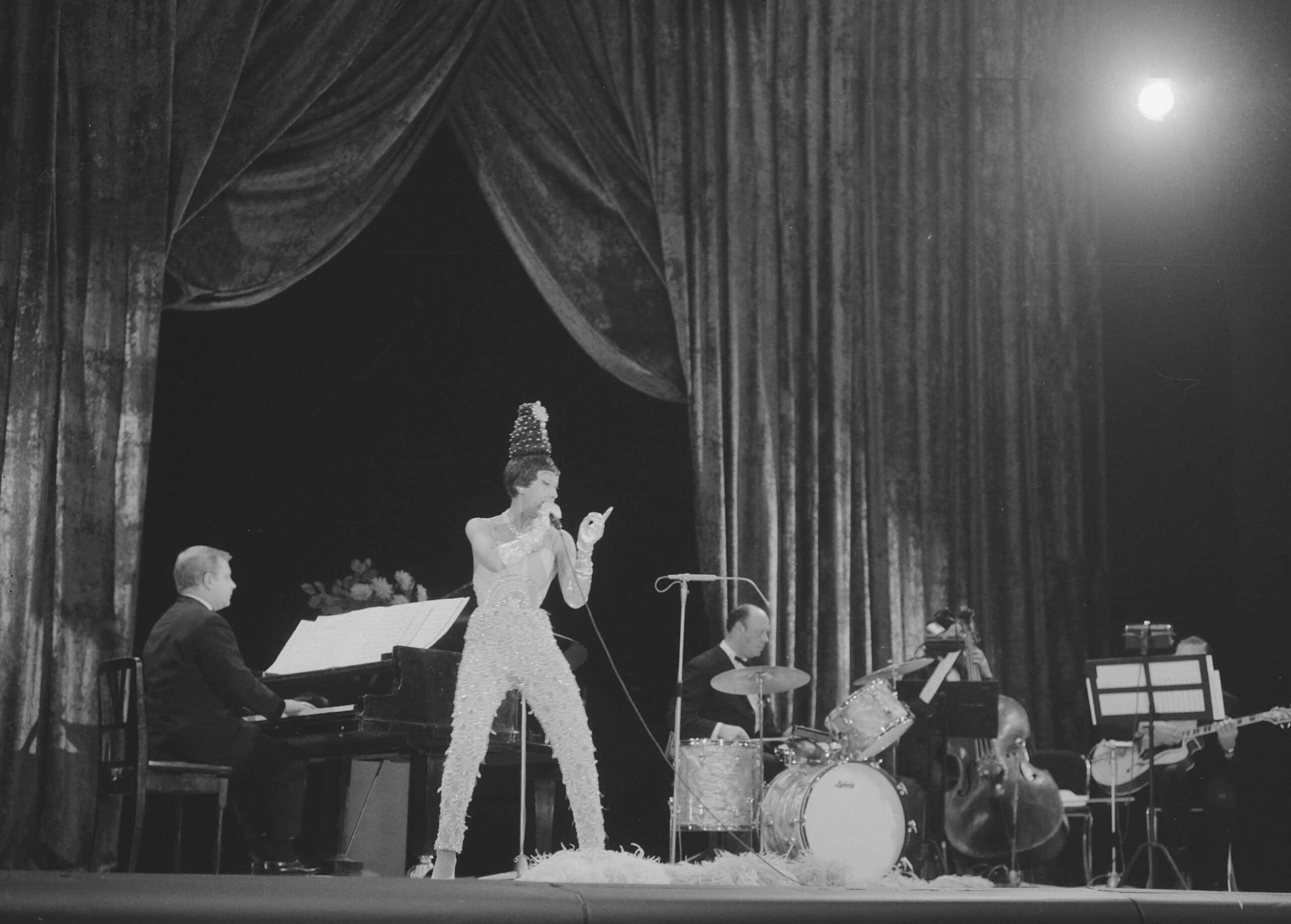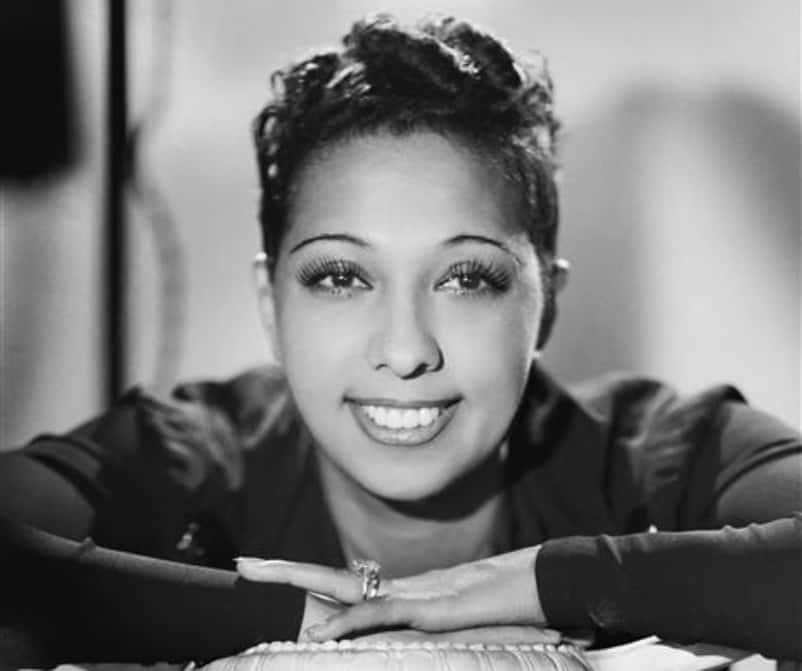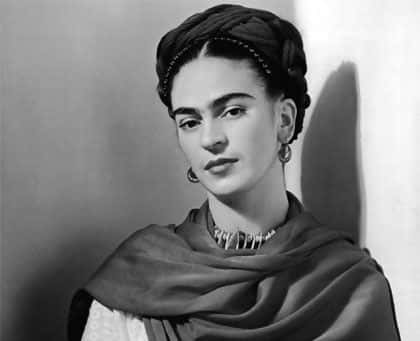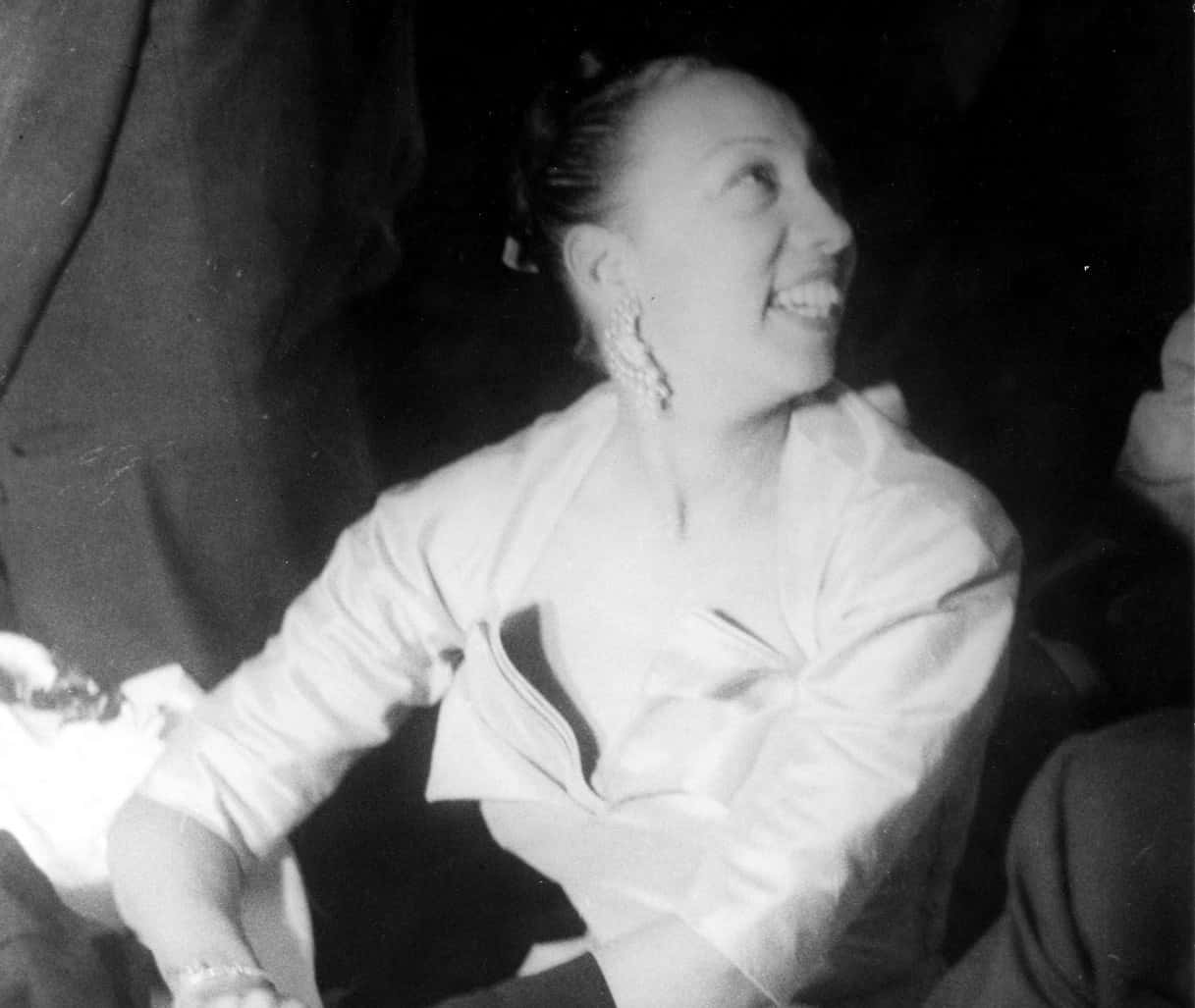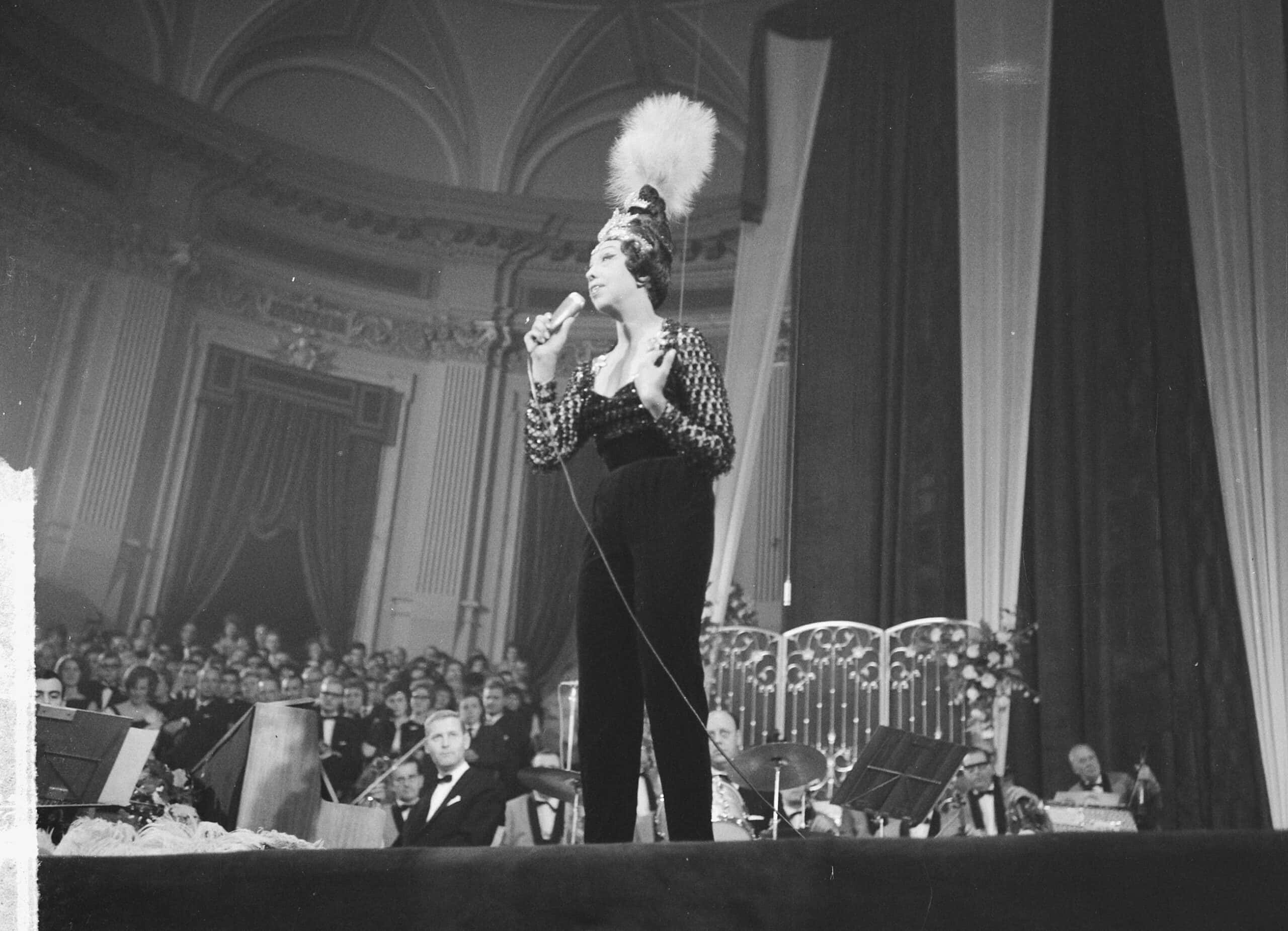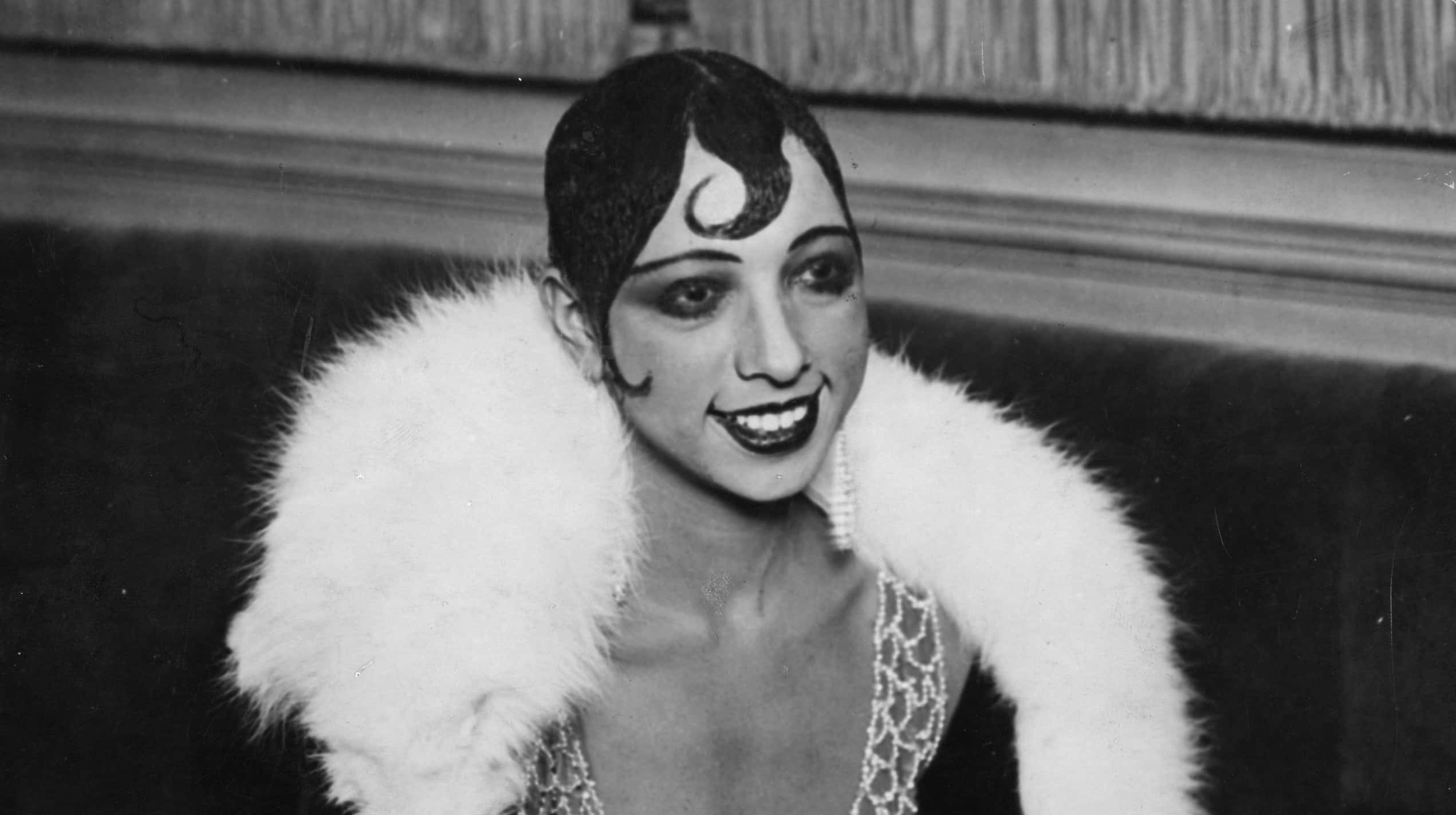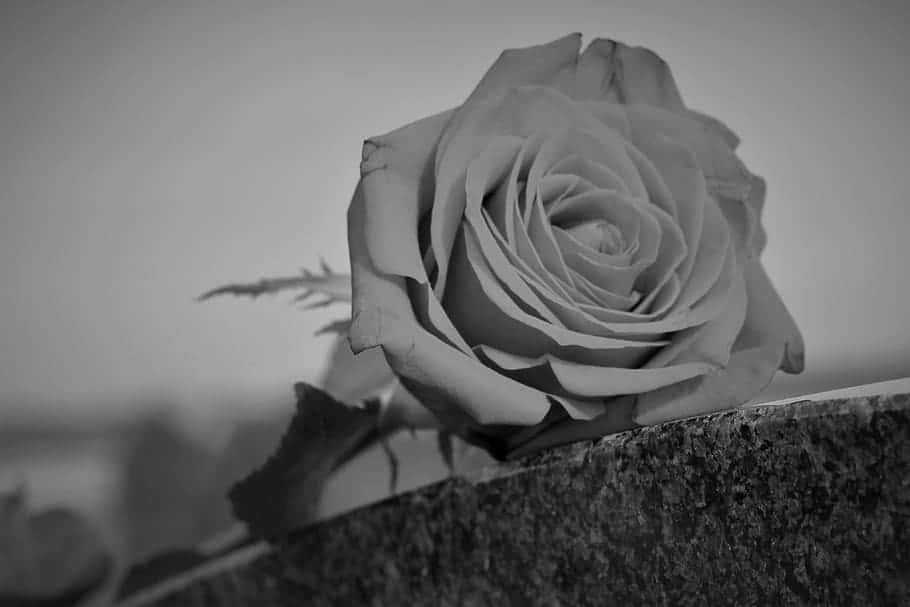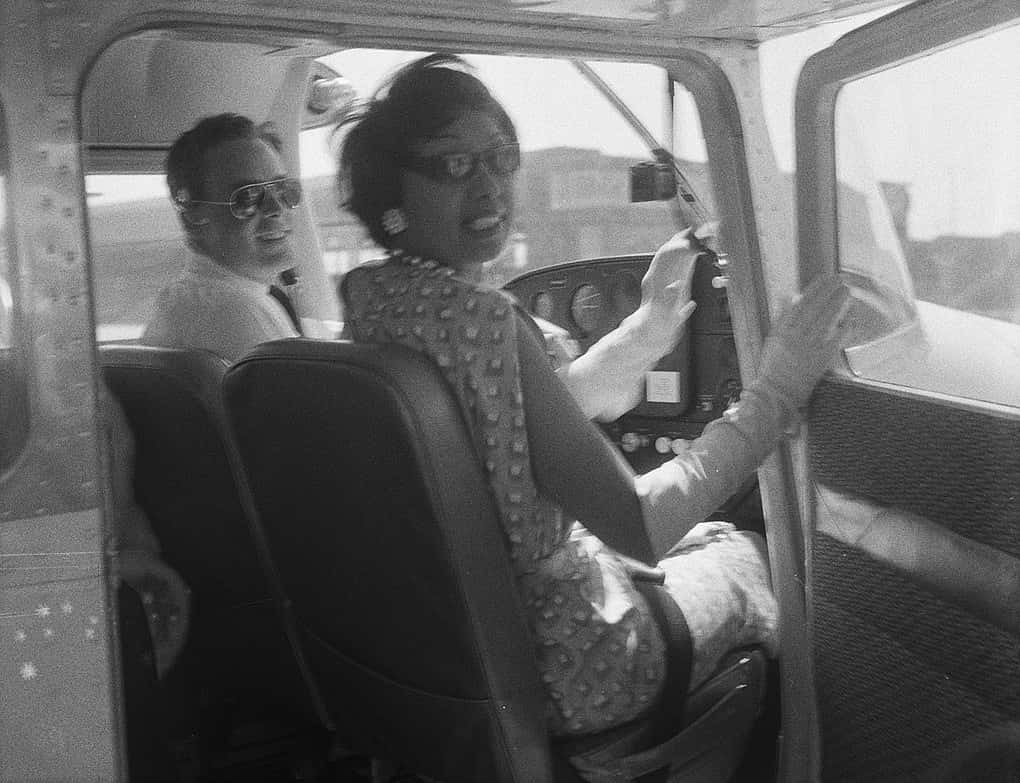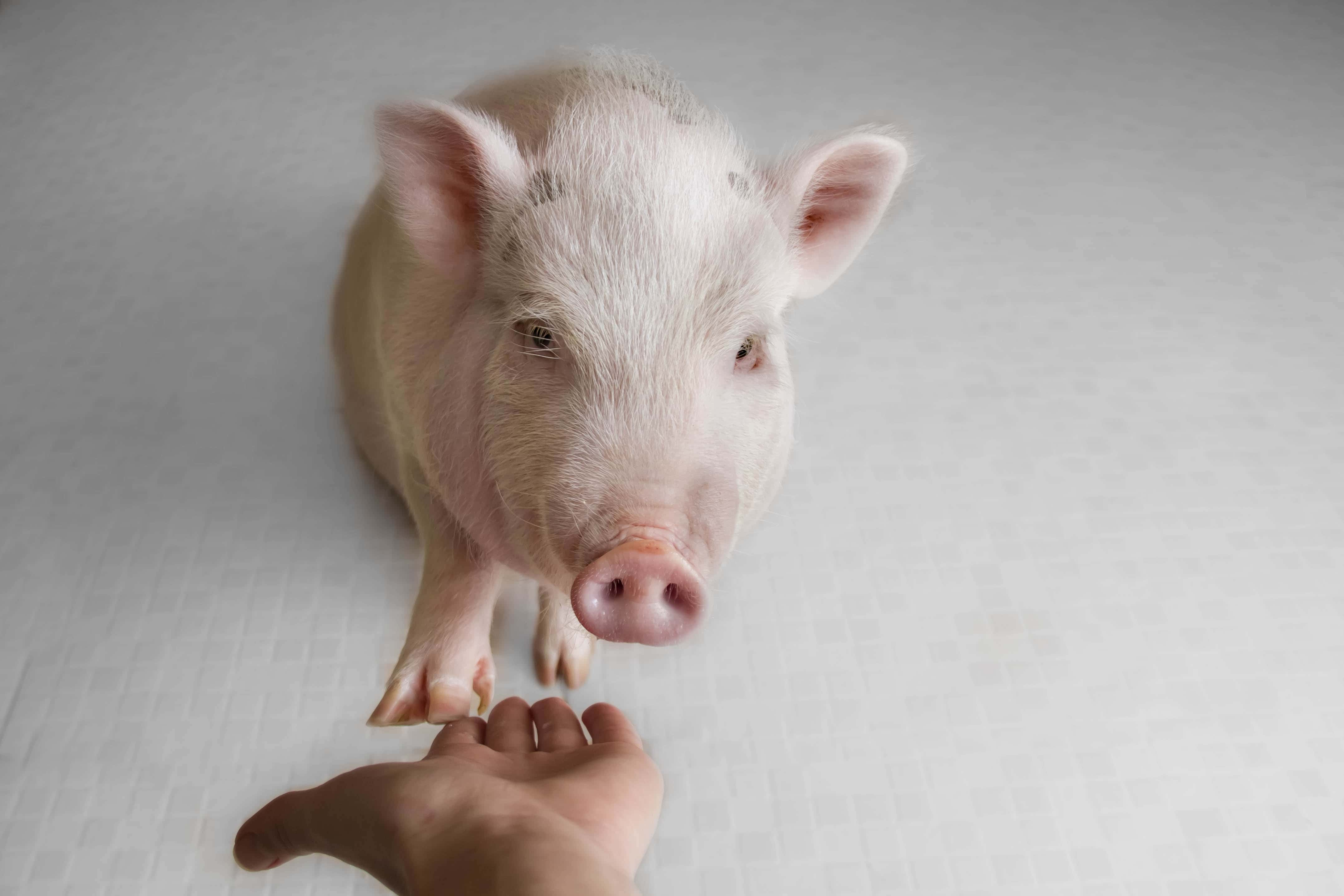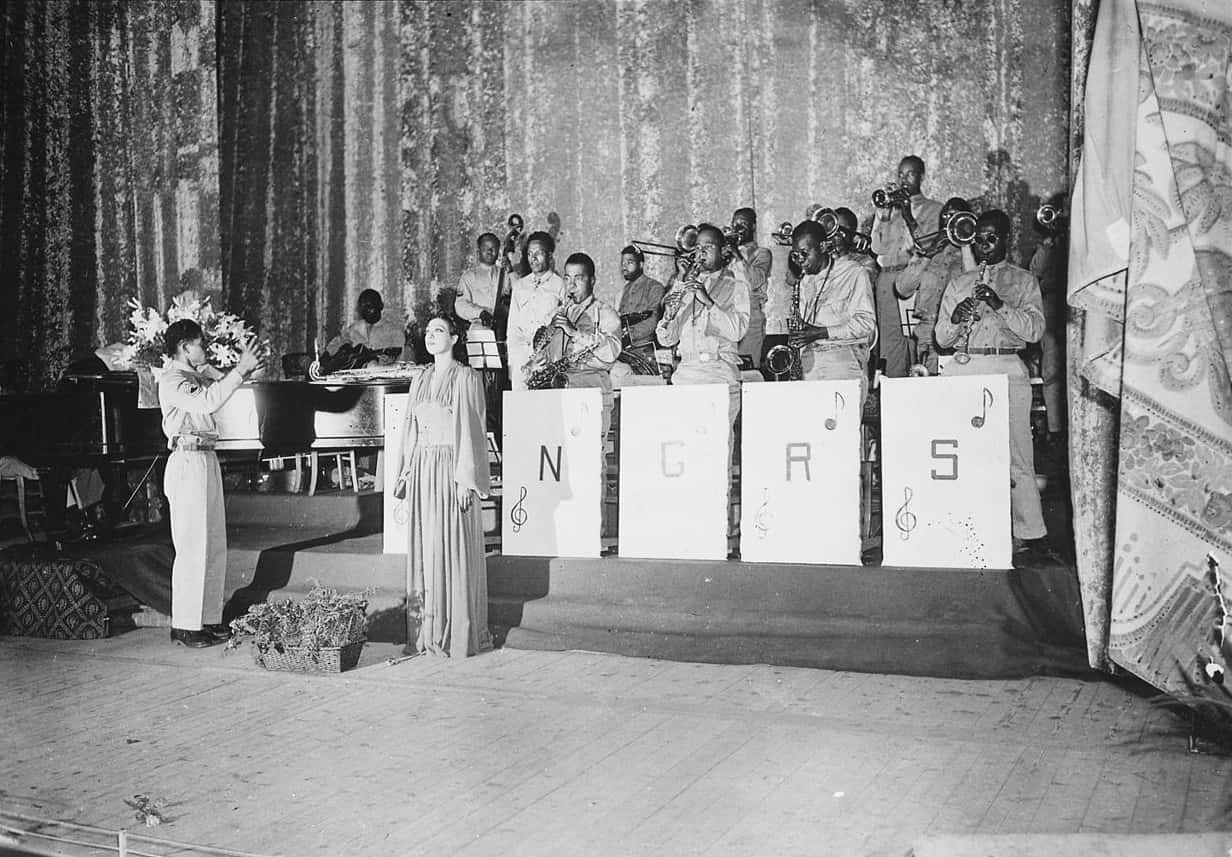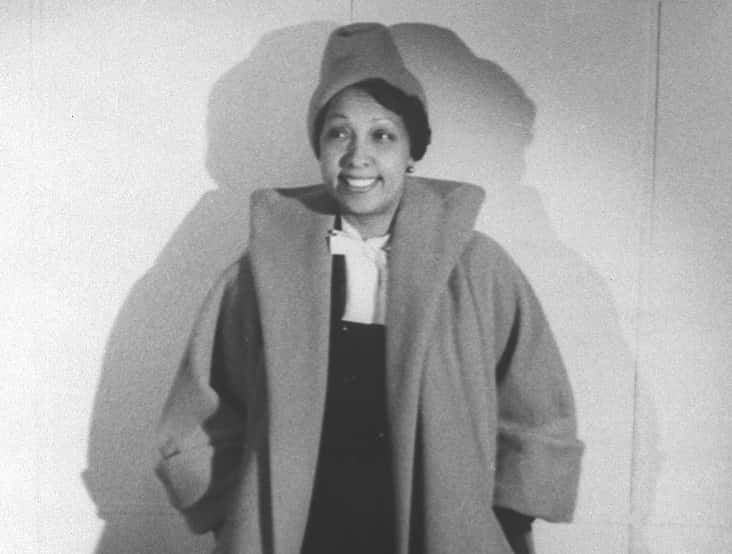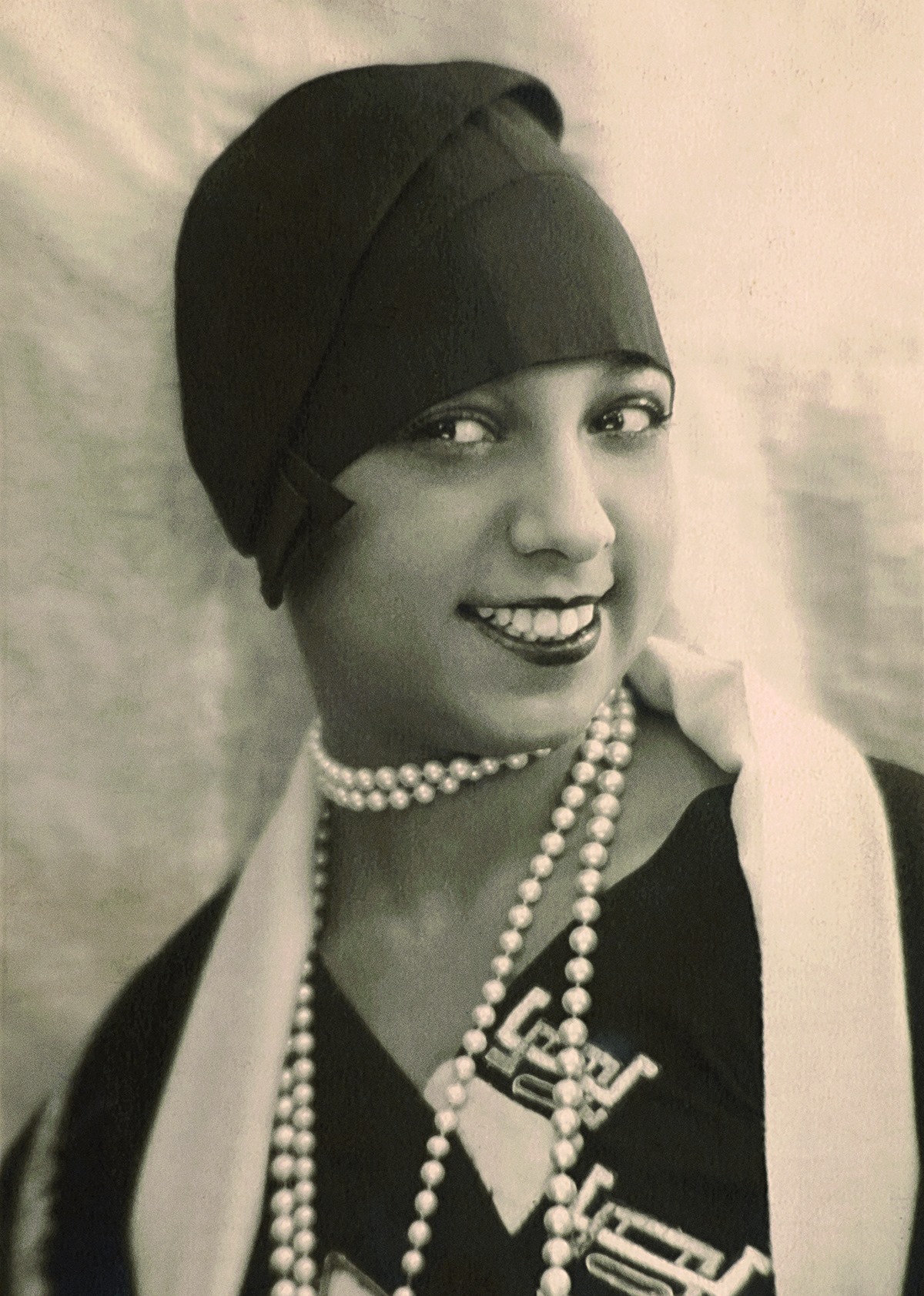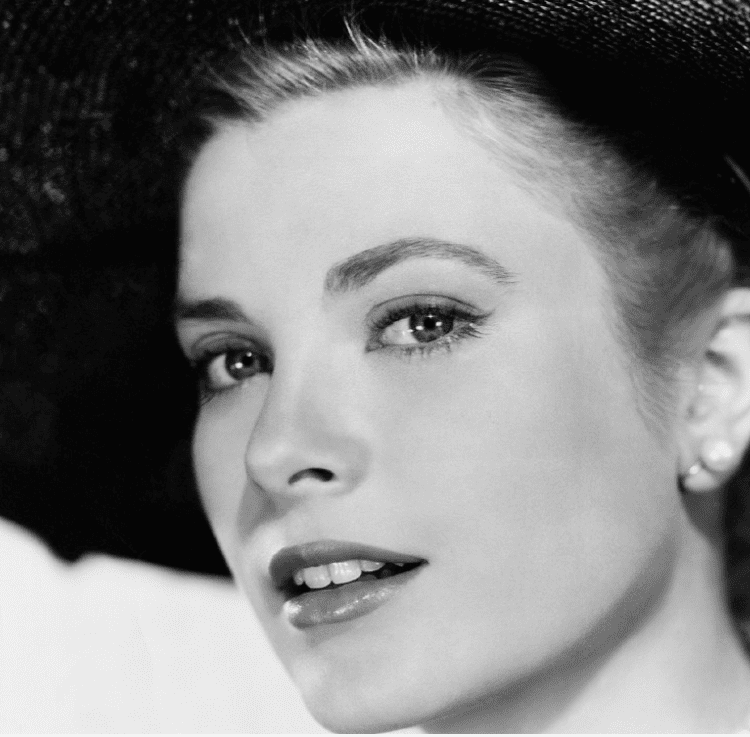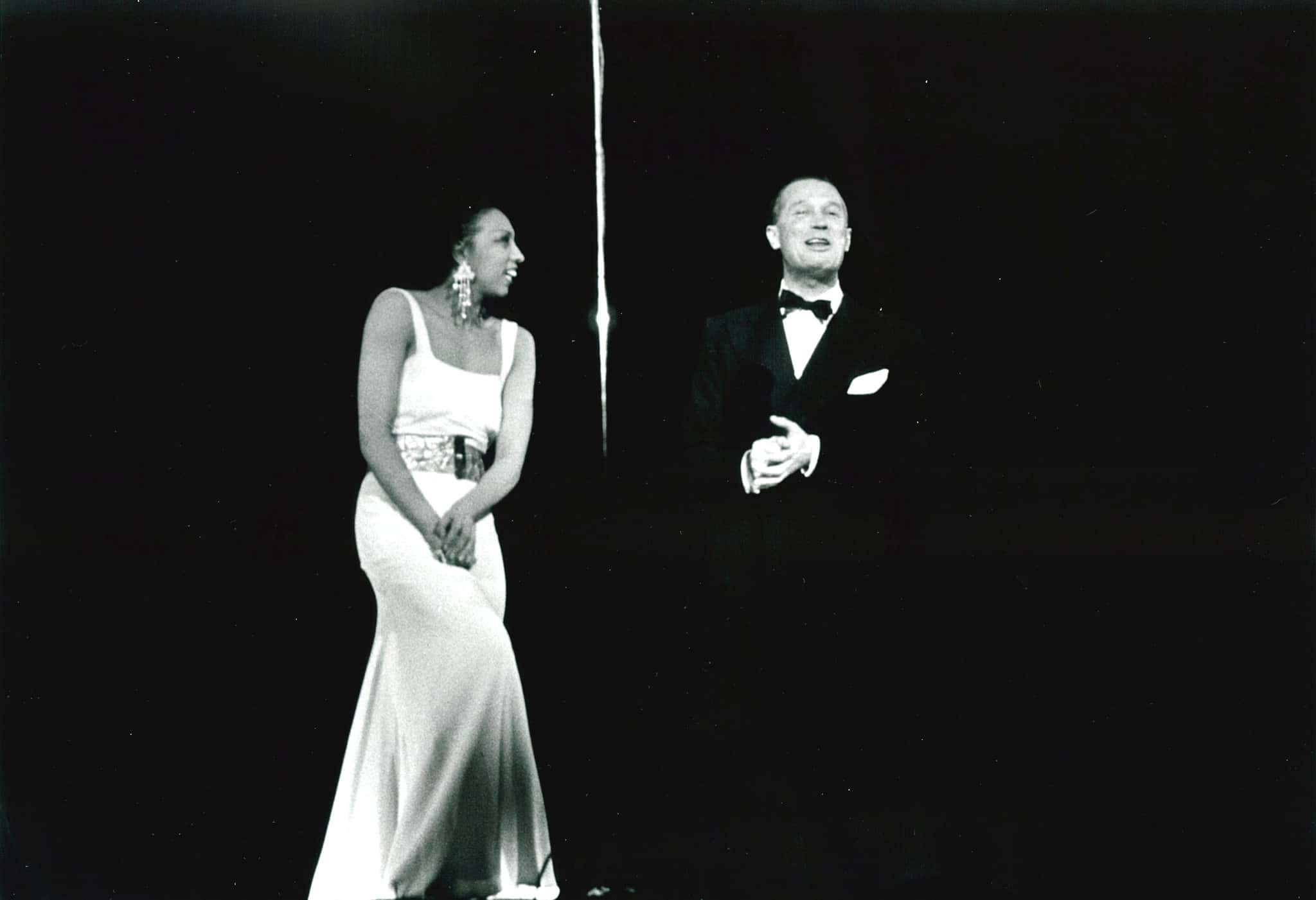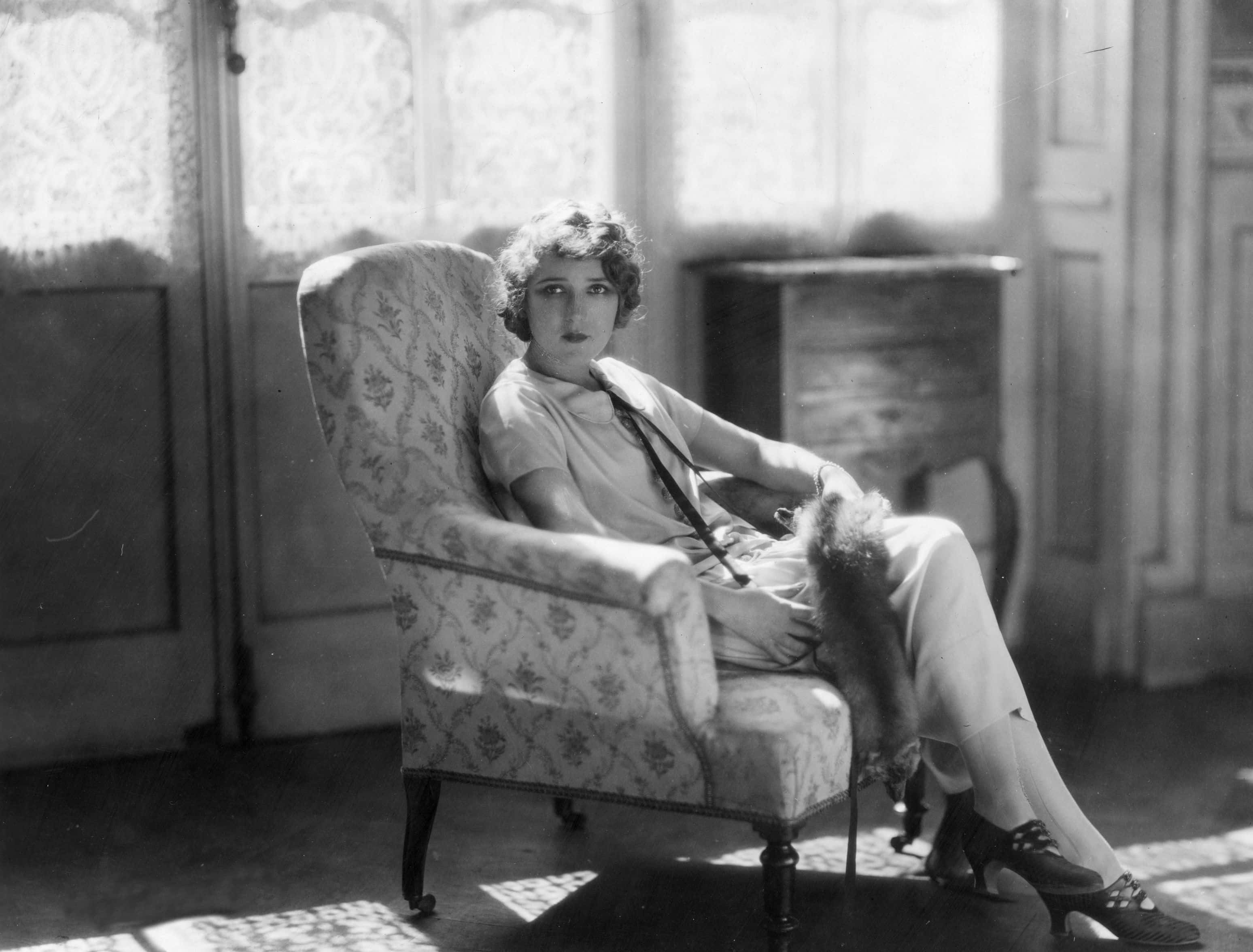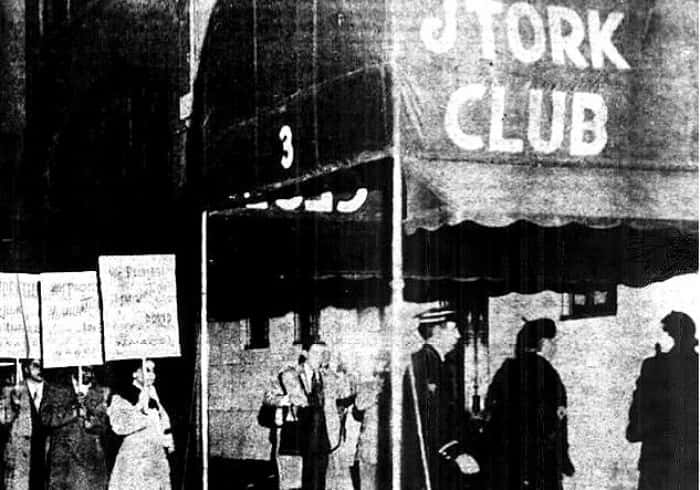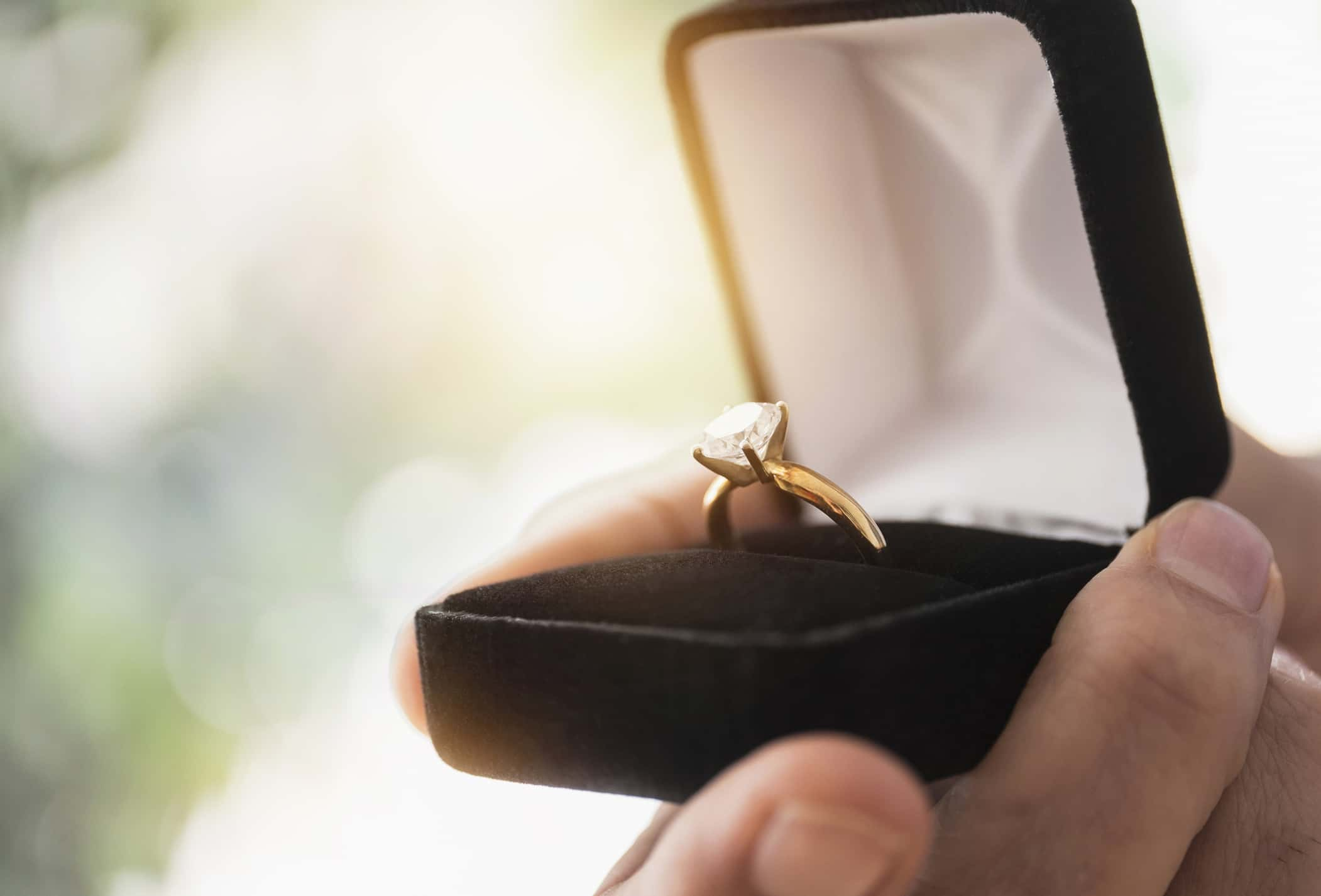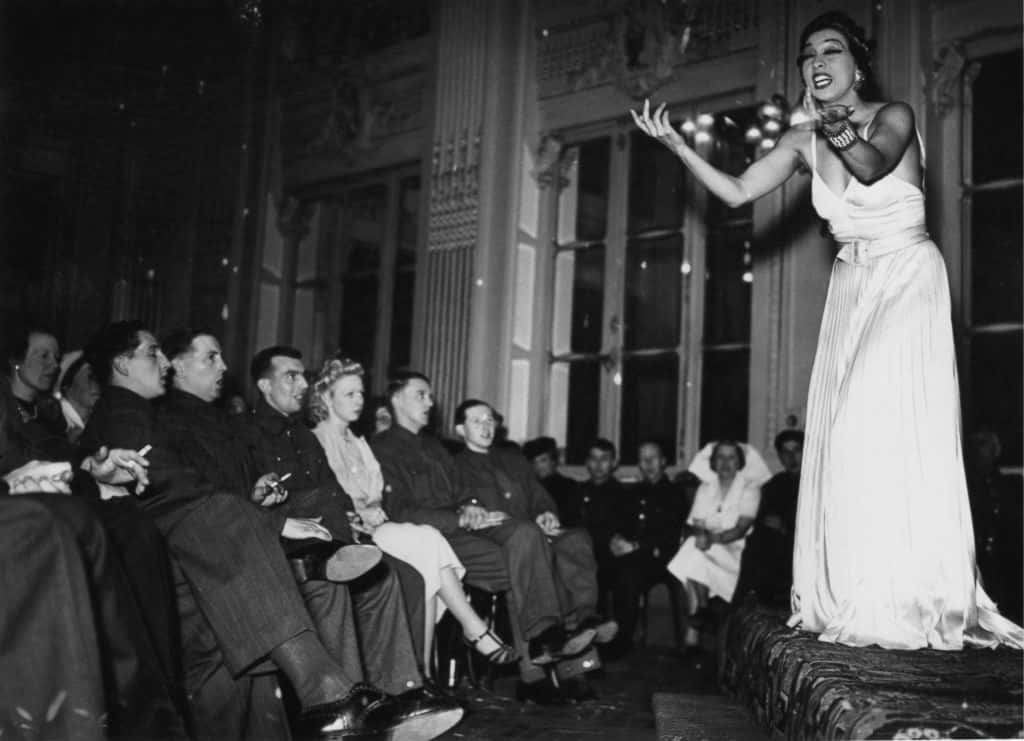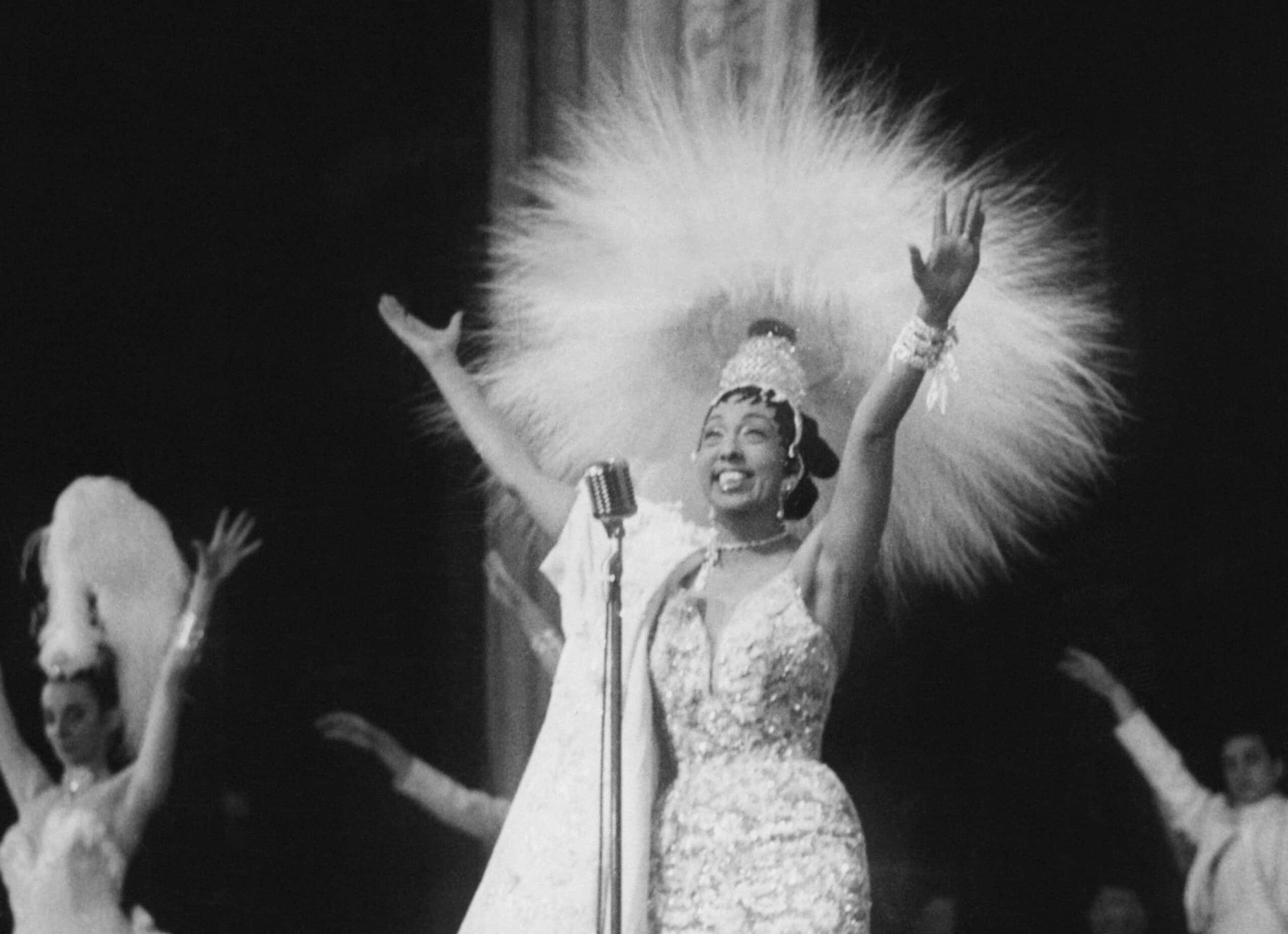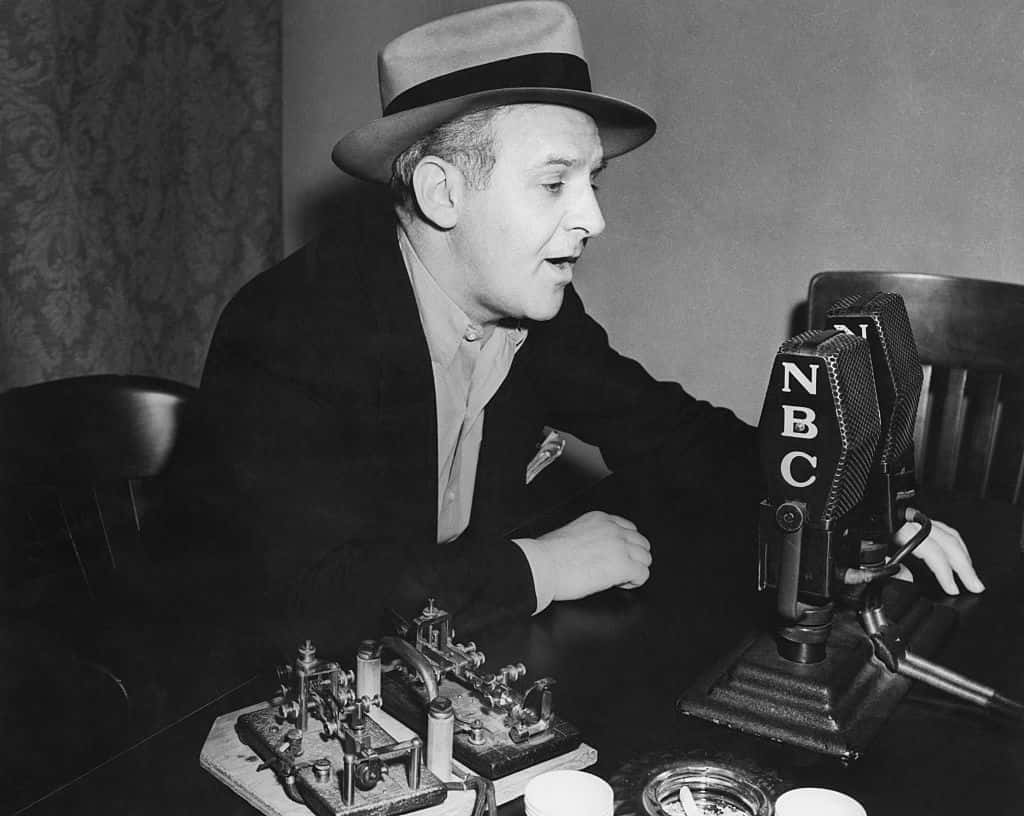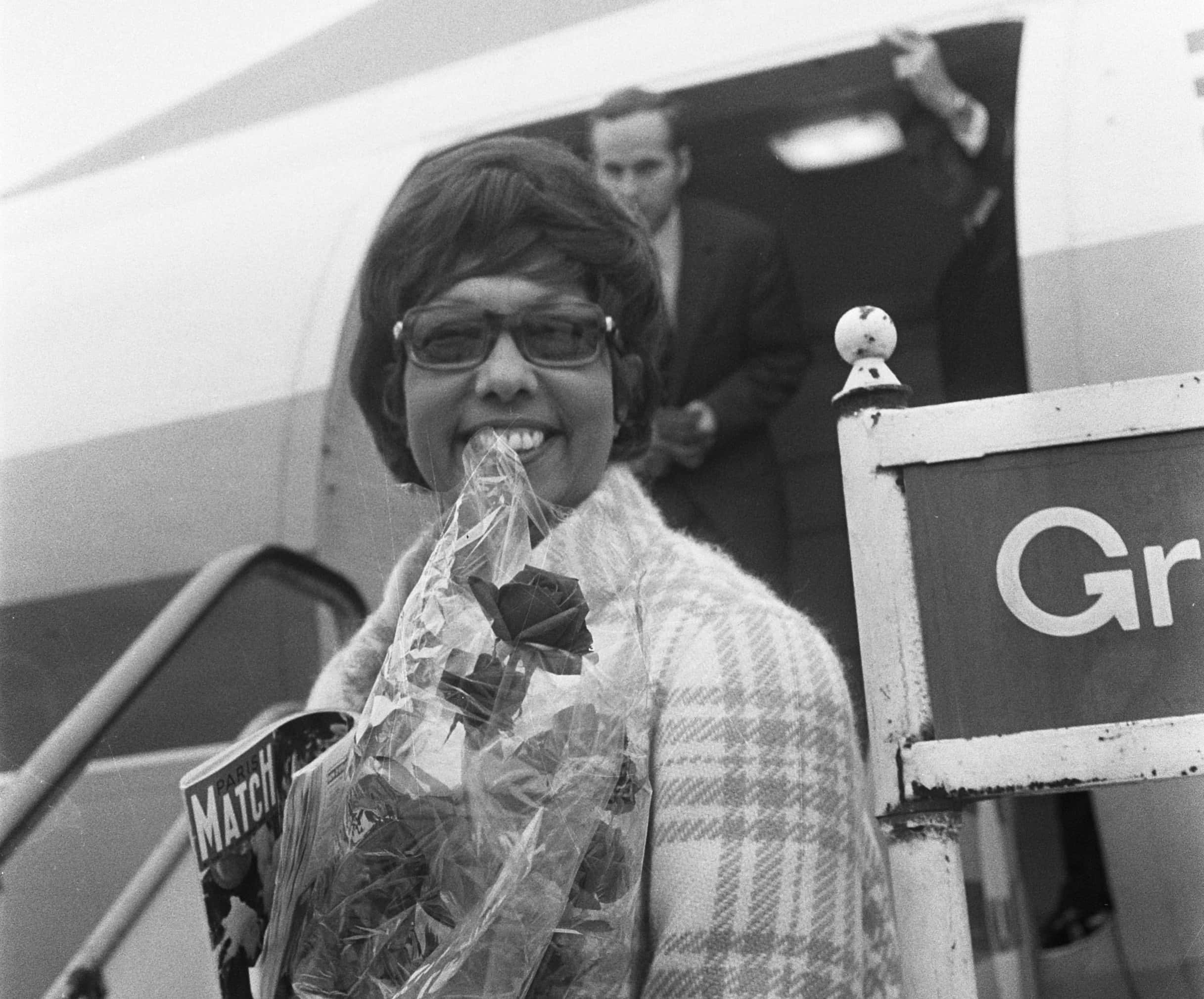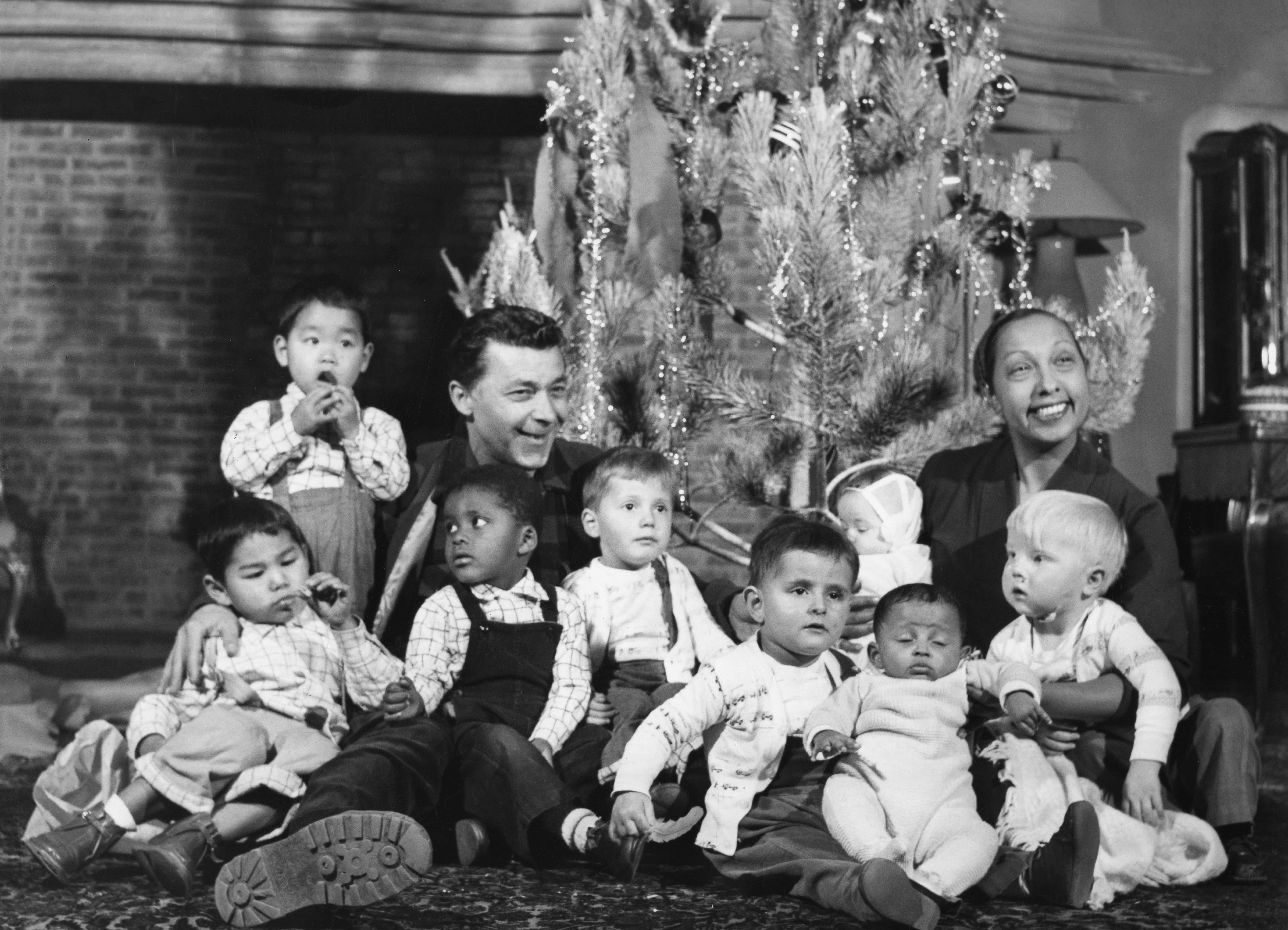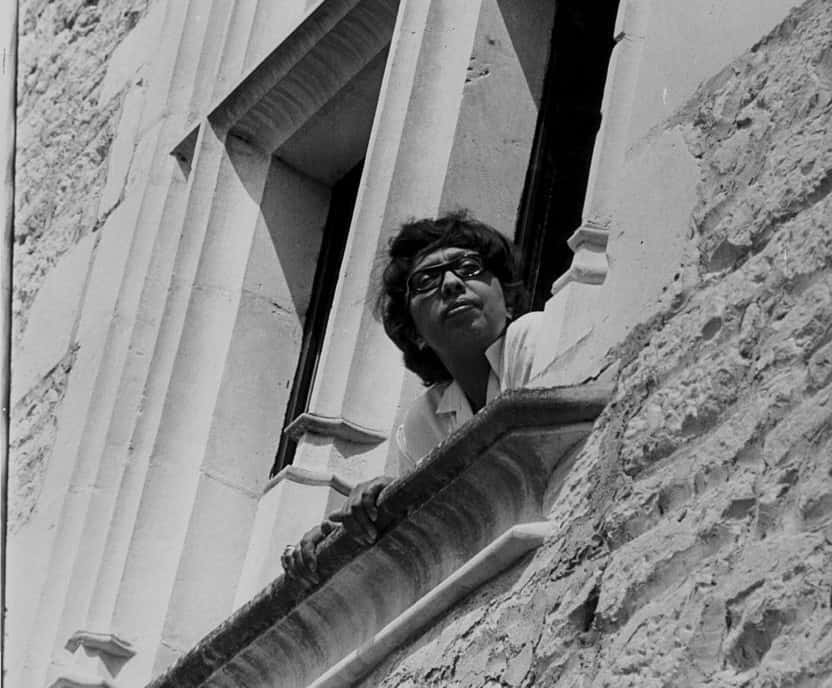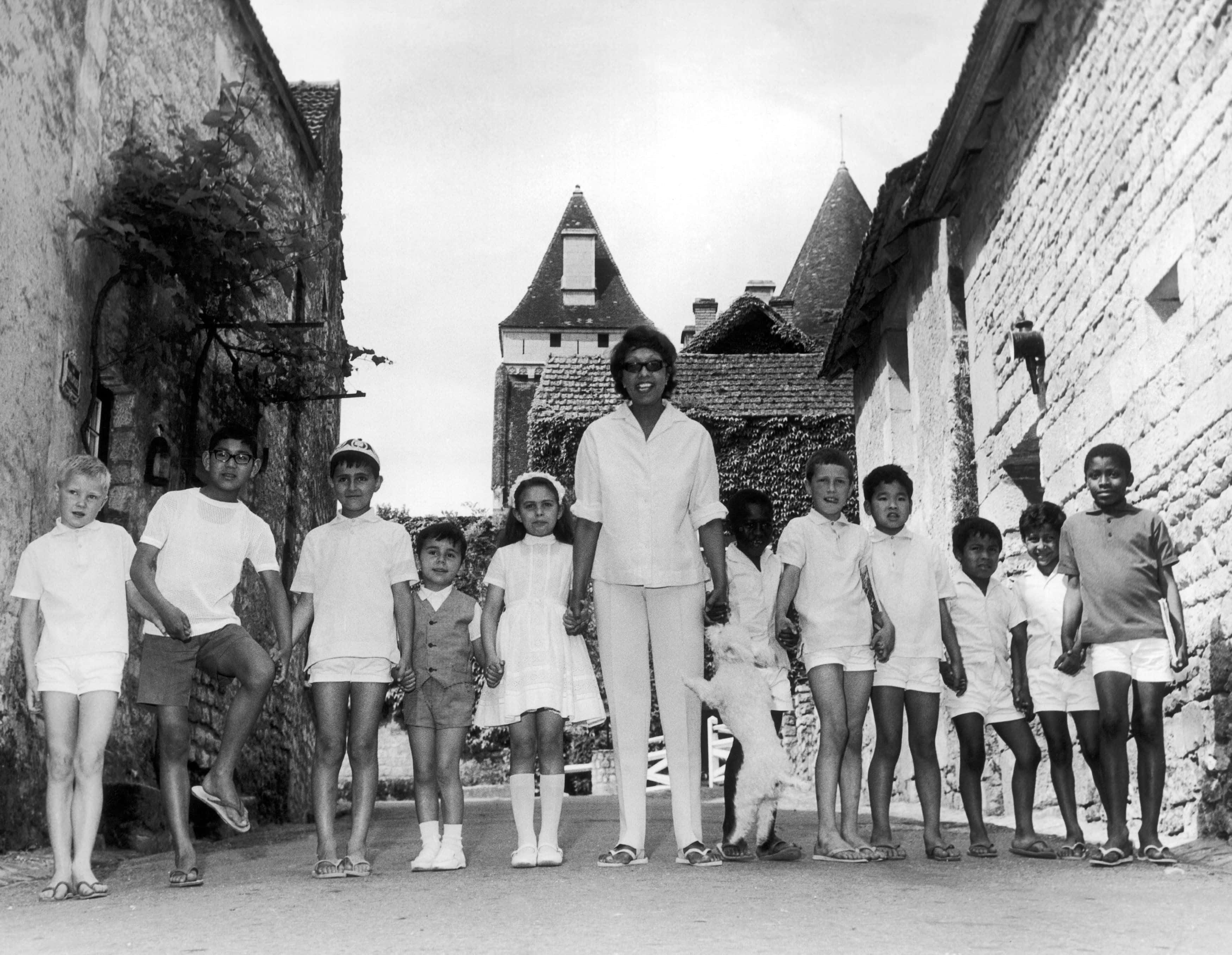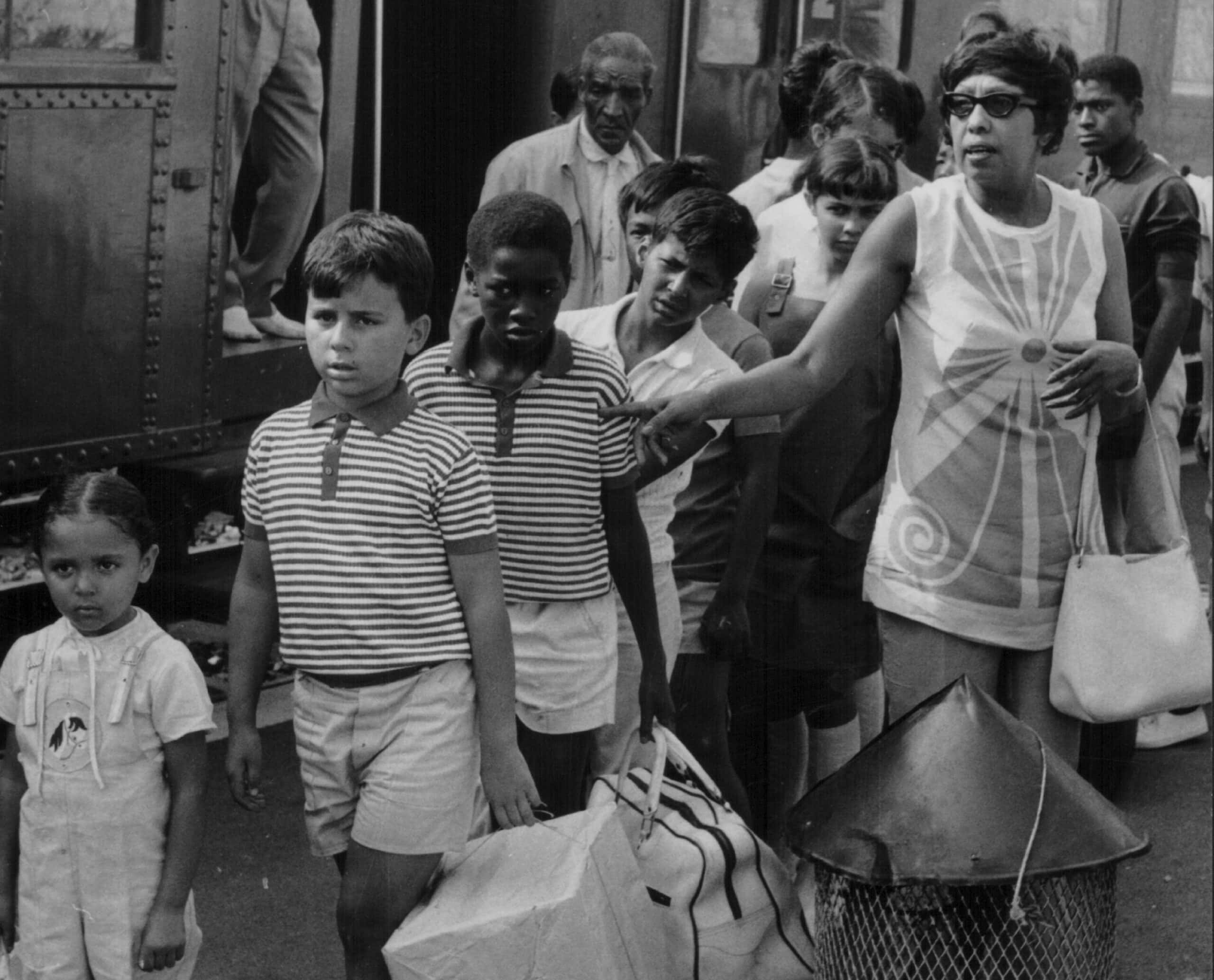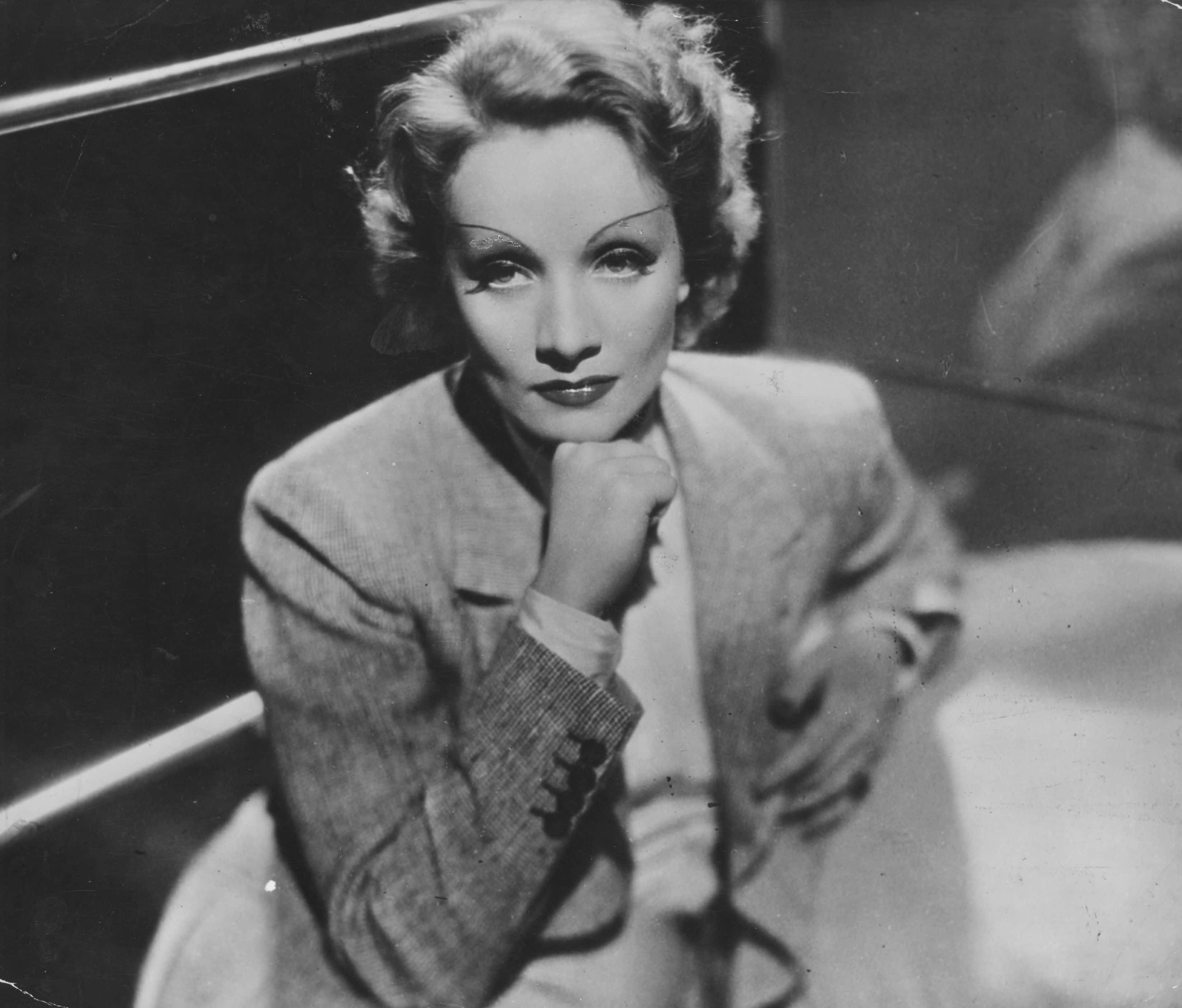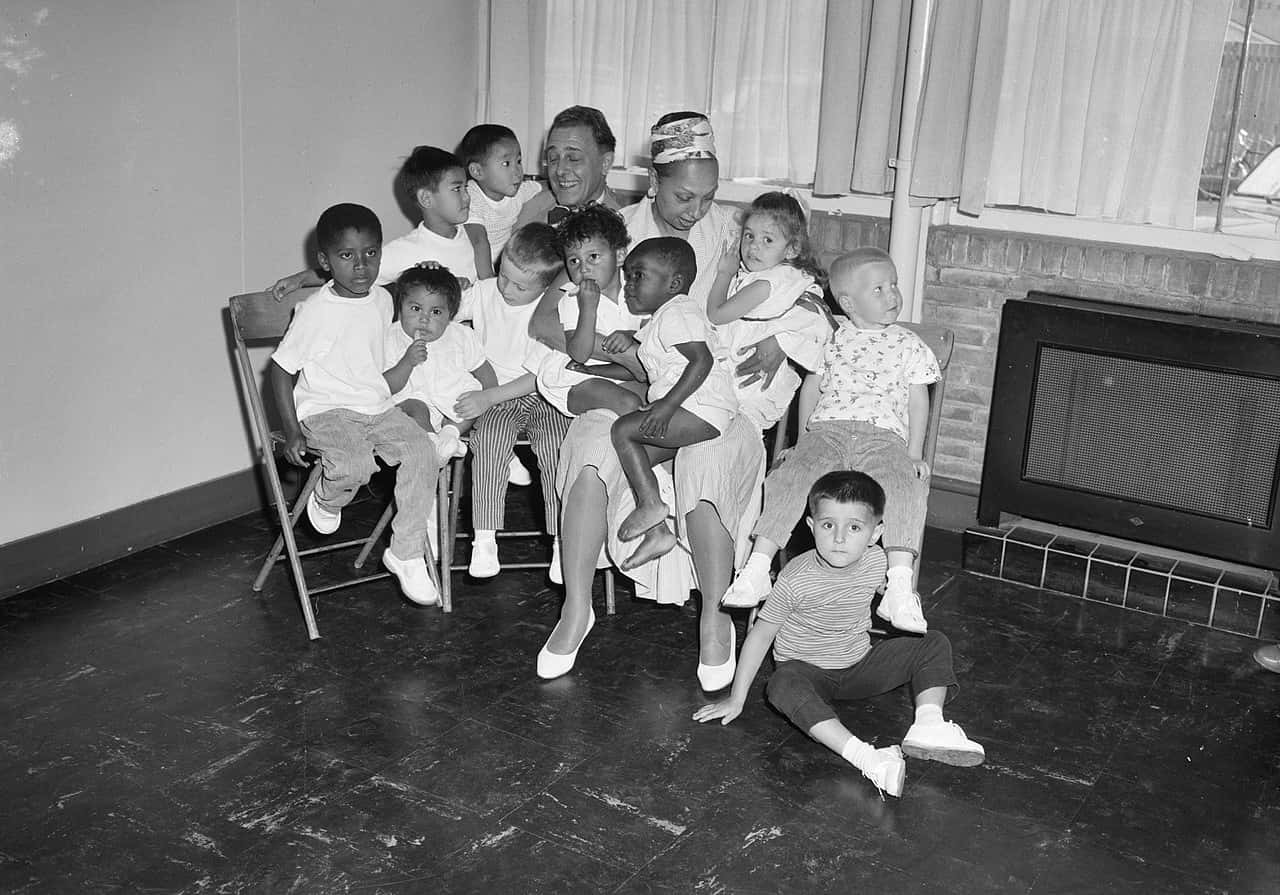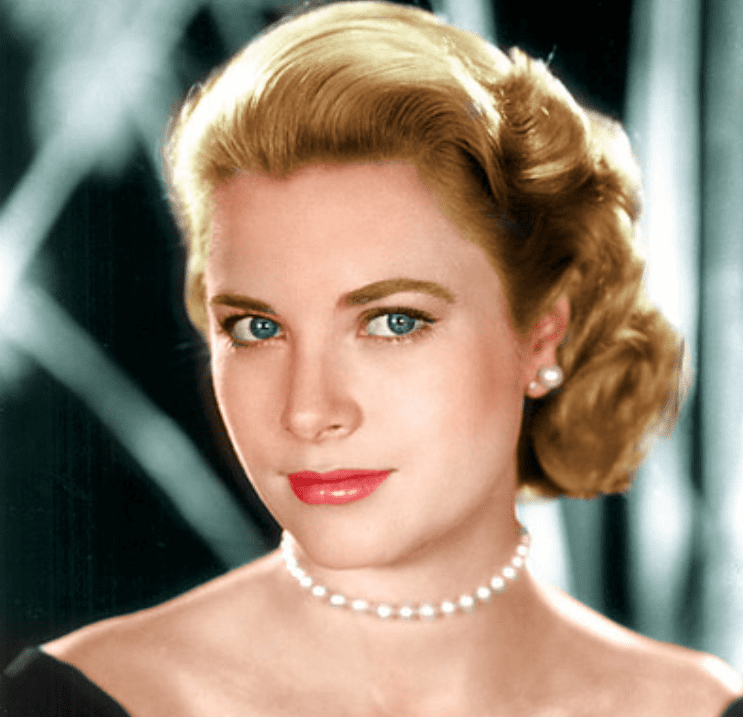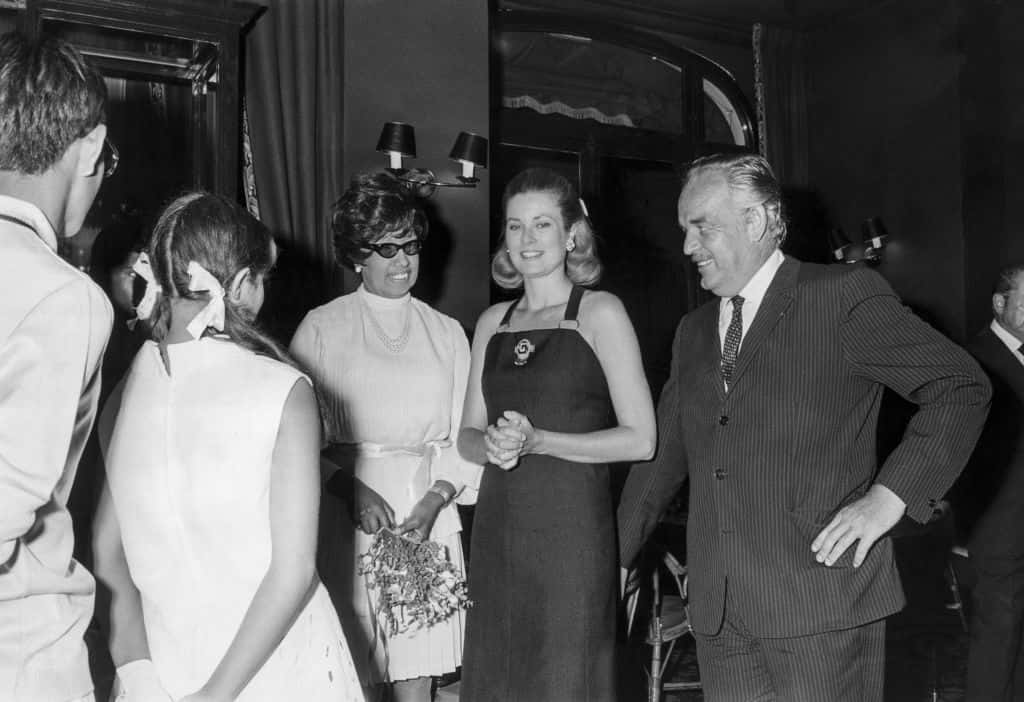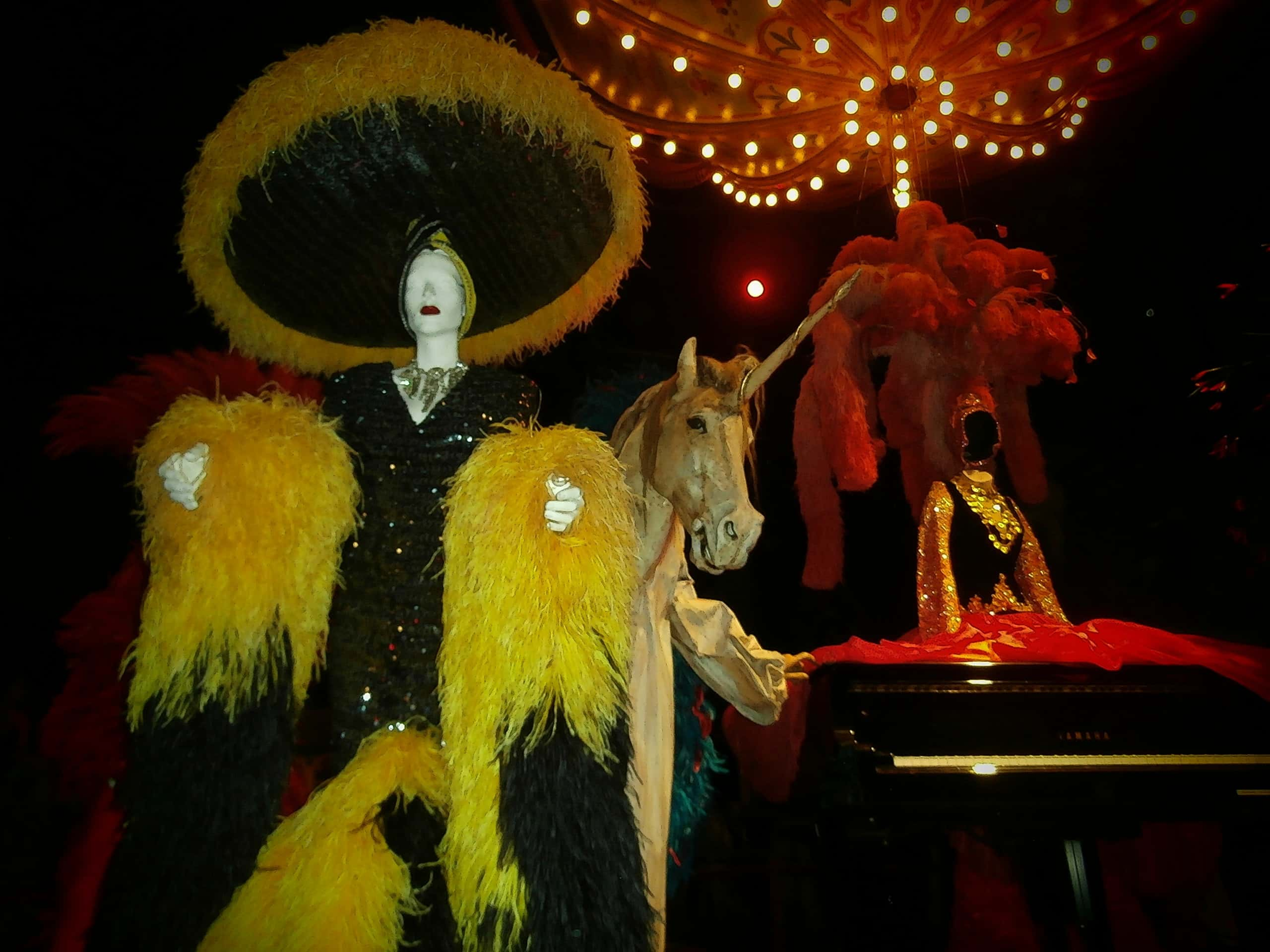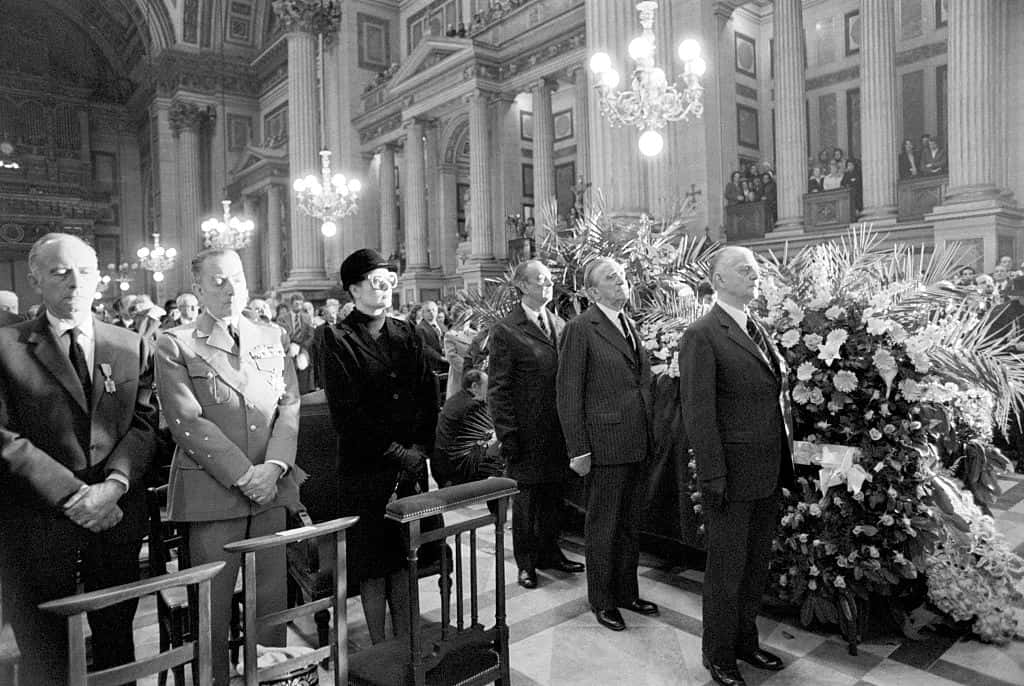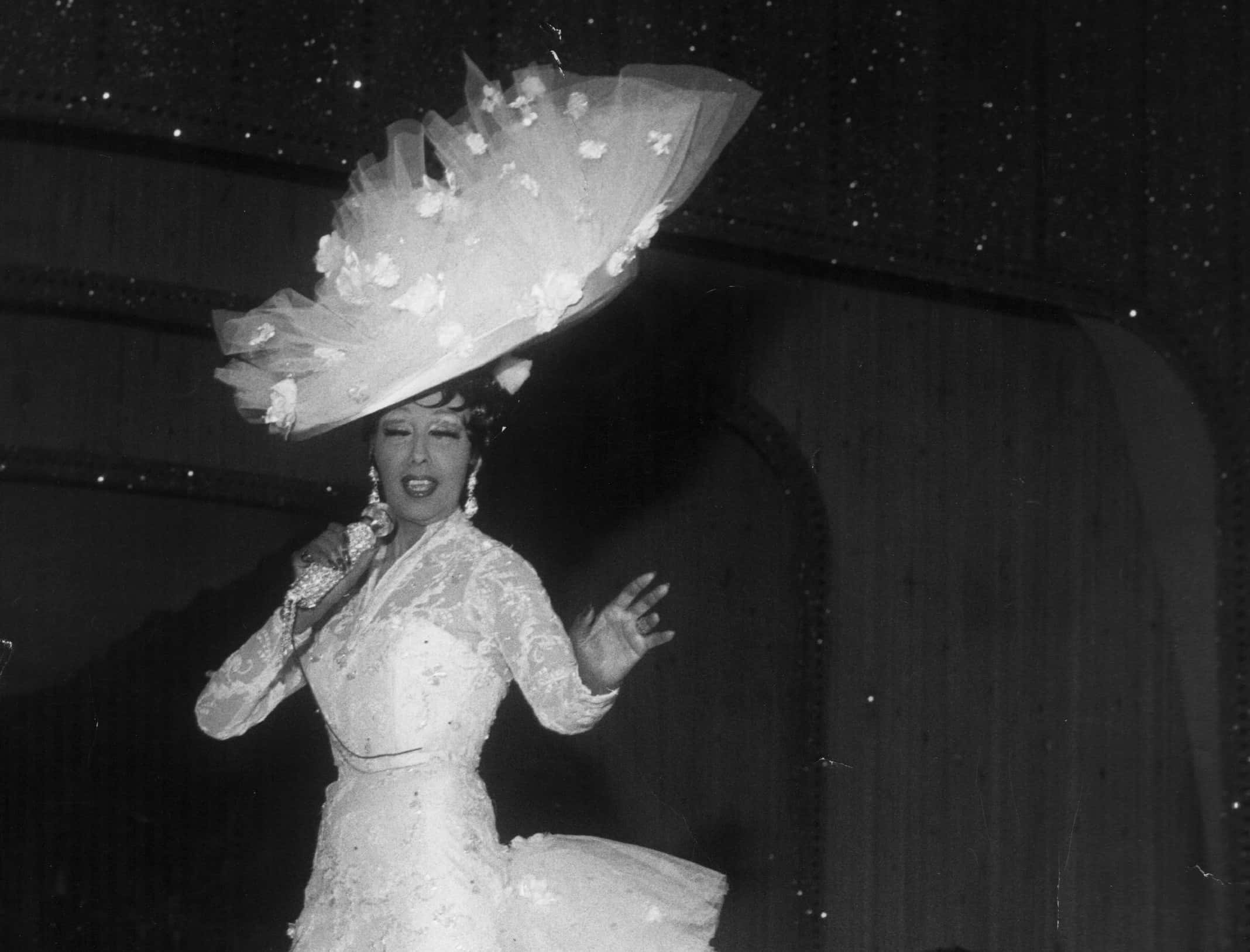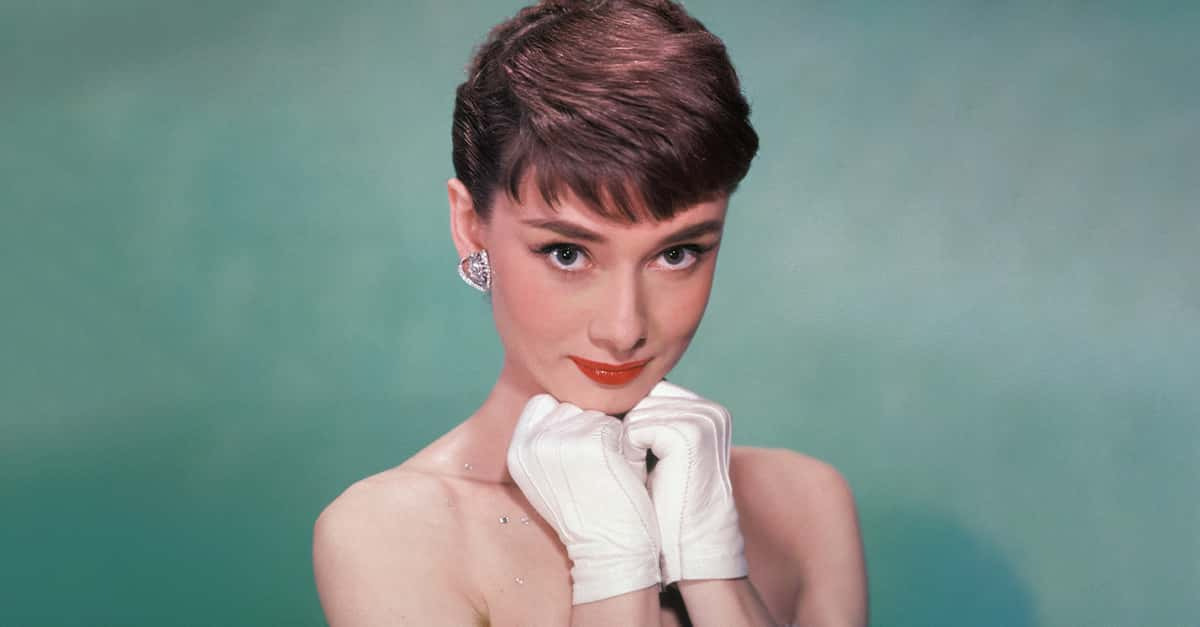Often called the Beyoncé of the 1920s, Josephine Baker lived a dozen lives in her time on earth. The African American singer made France her home, rising to stardom for her legendary dance moves, sultry voice, and vaudeville humor. But why doesn’t history talk more about the “Black Pearl” of Paris? From her maneater reputation to her time as a secret agent, it's high time to revisit the jaw-dropping life of Josephine Baker.
1. She Made People Go Bananas
Josephine Baker is probably most associated with her golden banana-skirted dance, the “Danse Sauvage". Beyond the fashion statement, the act revolutionized how dancers thought about movement itself. To quote one scholar, “She used her backside, shaking it as though it were an instrument". To quote another, Baker had a "witty rear end". But the "Danse Sauvage" was far from the only scandal Baker caused. Let's put it this way: From the get go, this girl knew how to cause a scene.
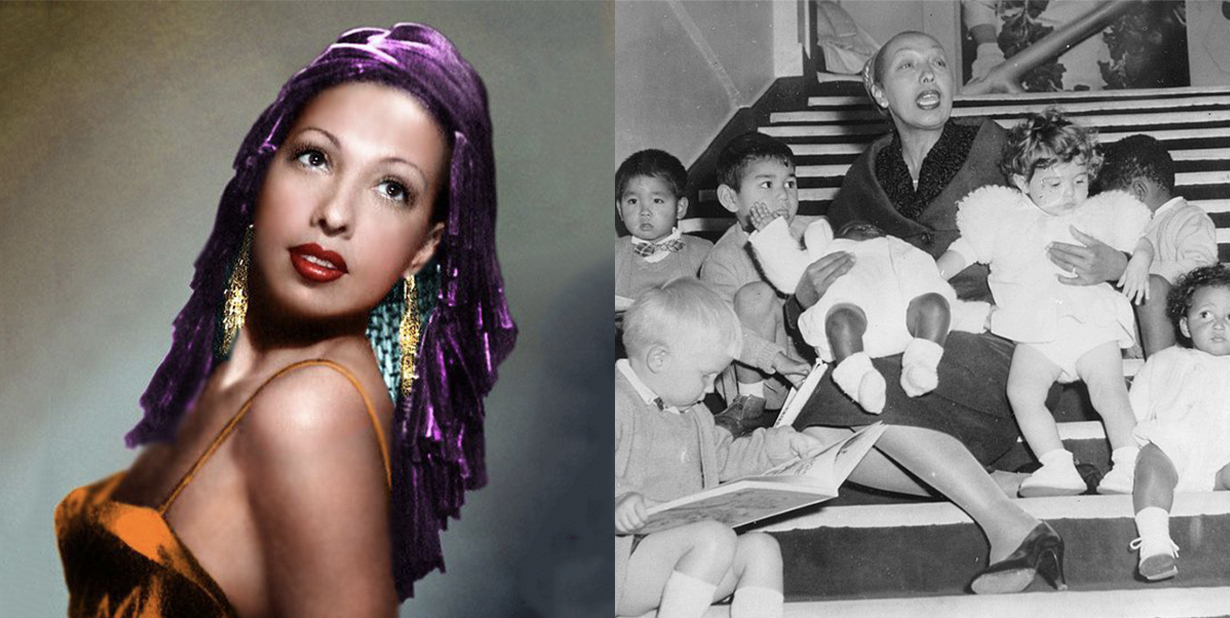
2. She Started From The Bottom
Josephine “La Baker” Baker was actually born “Freda Josephine McDonald” in St. Louis, Missouri on June 3, 1906. Most peculiar for African-American babies at the time, she was born in a hospital—not at home by midwife—where her mother Carrie stayed for several weeks after her birth. This strange detail has led Baker's biographers to suggest that an unnamed benefactor footed the bill for Carrie’s stay...and that he did so out of more than just the goodness of his heart.
3. Her Lineage Is Mysterious
Considering the strange circumstances of Baker's birth, many scholars believe that the mystery sugar daddy was actually Baker's biological father, whose identity is a mystery to this day. On paper, Baker's father was listed as Eddie Carson, a vaudeville drummer, though evidence suggests her biological father was actually an unknown white man.
4. There Was Mother-Daughter Drama
Even so, this was an unspoken truth in the Baker family. Her son and biographer Jean-Claude wrote that though he desperately tried to figure out Josephine's parentage, the secret of Baker's biological father ended "with Carrie, who refused to the end to talk about it". Sadly, Baker’s secretive identity as a mixed-race woman created a rift between Josephine and Carrie that would only grow as the years went on.
5. She Caught The Showbiz Bug Early
No surprise here, entertaining was the Baker family business. Her legitimate father, Eddie Carson, was a vaudeville drummer who would play anywhere and everywhere around St. Louis to make ends meet. Some sources claim that her mother Carrie was an nimble, alluring dancer who gave up her showbiz dreams and became a laundress. Either way, legend has it that little baby Josephine made her stage debut in one of her parents' song-and-dance shows at just one year old. Though she didn't know it yet, she'd go on to become one of the most iconic performers of all time.
6. But It Wasn't Always Glamorous
Soon enough, Baker began dancing on street corners—but even though she loved the thrill of performing, the precarity of showbix also followed. Baker stopped attending school before the sixth grade and during an especially tough time, she even lived as a street child. To survive, she would have to resort to rooting around garbage cans for food.
7. Her Childhood Was Brutal
When Baker was still a child herself, she went to work for a white family whose matriarch treated young Josephine abominably. When Baker accidentally used too much soap while doing the laundry, her cruel boss punished her by burning little Josephine’s hands. As though that's bad enough, affectionate and kind-hearted Josephine was also barred from kissing her boss' white babies because of Baker's darker skin.
8. Her Mother Was Hard To Please
Teen years can be tough on mother-daughter relationships, but the tensions between Baker and her mother Carrie was worse than most. Carrie disapproves of her daughter's two divorces before the age of 20 (more on them soon) and her burgeoning entertainment career. Carrie hoped that her daughter would settle down, but Baker needed to be in the spotlight. At a certain point, mother and daughter just couldn't see eye to eye. Sadly, things would only get worse.
9. She Didn't Give Up
At the height of the Harlem Renaissance, Baker was a successful Broadway performer. In time, she was billed as “the highest-paid chorus girl in vaudeville” but success didn't come overnight. When Baker first auditioned to join the all-Black cast of Shuffle Along, the producers showed her the door for a cruel reason: She was "too skinny and too dark". But Josephine wasn't one to give up without a fight.
10. She Was A Box Office Draw
While Josephine worked long days as a dresser, she spent her nights studying the Shuffle Along routines and learning them by heart. Soon enough, all her hard work paid off. When one of the original dancers left the show, Josephine saved the day, and then some. When she performed, Baker would act silly and pretend not to know her moves. Later, in the encore, she would wow the crowd by performing the steps perfectly. Baker's professional life was going spectacularly, but her personal life was another story.
11. She Moved Fast
Josephine Baker started her temptress cred early, walking down the aisle for the first time at just 13 years old. She met her first groom Willie Wells while working as a waitress, but it wasn't meant to be. The young lovers' marriage lasted for barely a year. Barely a teenager at the time, Baker rebounded from her divorce by joining the Jones Family Band and promptly marrying someone else...just two years later.
12. She Was A Maneater
Josephine always lived life to the fullest. At the age of 15, Josephine fell madly in love with another beau and decided to make things official yet again. On this trip down the aisle, Baker walked toward her latest conquest, Willie Baker. Although they split just four years later, Josephine would keep a part of Willie with her always. She used his last name for the rest of her professional life.
13. Her Mother Never Forgave Her
For years, Baker tried to win over her mother and repair their damaged relationship. She would always return home from tours with gifts and money for her mom and little sister, but no matter what Josephine did, she just couldn’t buy Carrie’s approval. Sadly, mother and daughter never quite repaired their fractured bond. Their disintegrating relationship was a major factor in Baker’s move to Paris in 1925.
14. She Hit Rock Bottom
Here's another reason for Baker and her mom not getting along. Baker made ends meet by appearing in some dicey productions. The young starlet would work in blackface comedy and minstrel shows. Her mother Carrie found these deeply offensive and never forgave her daughter for appearing in that kind of material.
15. She Became A Sensation
Once she settled down in Paris, Baker rubbed elbows with the biggest names in art—and caused an absolute frenzy. Almost overnight, she became the toast of the town, and young men roamed the Paris streets dreaming of her lithe body dancing the Charleston while (barely) clad in bananas, boa feathers, and diamond chokers. Pablo Picasso jumped at the chance to paint her beauty, while the French writer and artist Jean Cocteau wanted her to star in films.
16. She Started A New Art Form
These days, Dita Von Teese is the big name in burlesque, but we'd never have her famous martini routine with Josephine Baker. Baker pioneered sensual dancing by performing sultry numbers clothed in just a single ostrich feather or, when she was feeling even more risque, less than that. While some people see exotic dancing as improper, Baker firmly disagreed. With her blend of silly expressions and sultry dance moves, her act was all about joy and freedom.
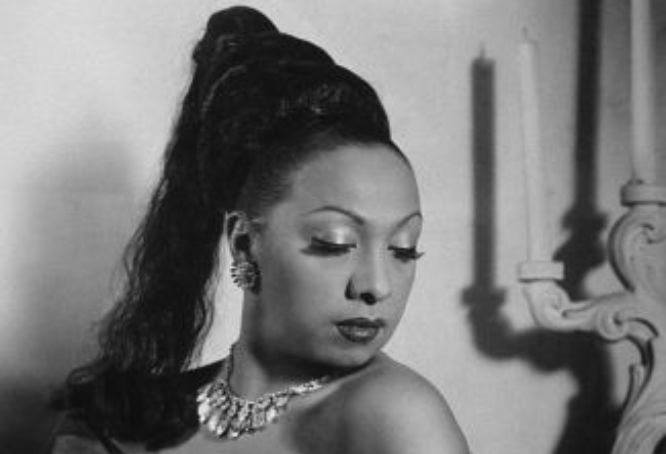 Rudolf Suroch Wikimedia Commons
Rudolf Suroch Wikimedia Commons
17. She Was A Groundbreaking Actress
Why did Josephine Baker love France so much? The answer is simple: It was nowhere near as discriminatory as the USA. When Baker and her fellow Black performers boarded a train, they were shocked to see that they could sit wherever they pleased. France's more accepting society made a huge difference to Baker's career. She became the first African American woman to take the lead role in a major movie, playing heroines in Zouzou, The Siren of the Tropics, and Princesse Tam Tam. Meanwhile, back in Hollywood, Black actresses were mostly stuck playing maids.
18. She Was An Icon
Baker's famous upturned banana skirt was designed by the famous French artist and critic Jean Cocteau, and the garment became an absolute sensation. When European toy manufacturers began to produce popular Josephine Baker-esque dolls, they immediately knew that they had to dress them in Baker's iconic banana skirt. Baker was at the top of her game, but the hit parade wouldn't last forever.
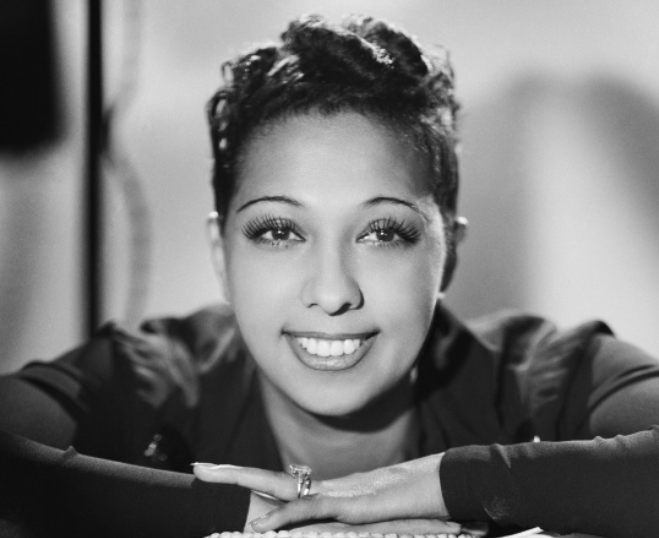 Studio Harcourt, Wikimedia Commons
Studio Harcourt, Wikimedia Commons
19. She Went By Many Names
Josephine Baker collected colorful nicknames over her life. Throughout her long career, she was called "The Bronze Venus," “La Baker,” “Black Venus,” “Black Pearl,” and even the “Creole Goddess". Even Pablo Picasso couldn't resist her charms. He described Baker as being tall with "coffee skin, ebony eyes, legs of paradise, and a smile to end all smiles" and summed up her beauty by calling her "The Nefertiti of Now".
20. She Was The OG Diva
Baker knew how to keep all eyes on her. She had a pet cheetah named Chiquita, who actually had a role in the singer’s act. Complete with a diamond collar, the jungle cat would take car rides and holidays with her mistress and even sleep in Baker's bed.
21. She Made Paper
During her time in Paris, Baker was a bonafide A-Lister. From her stage shows to her starring roles on the silver screen, "Josephine Baker" was the name on everyone's lips. Is it any wonder that by 1927, she was said to be the wealthiest Black woman in the world? But as Baker was ascending to the top of the A List, Europe was falling into its darkest era.
22. She Encountered Discrimination
When Baker began her glitzy tour through Europe in 1928, she had no idea what awaited her. As she entered Vienna, Baker realized that she was deeply unwelcome. All over the city, cruel posters called her a "Black Devil" and urged the public to avoid her shows. Once so much more accepting than the United States, Josephine's beloved Europe had become just as discriminatory.
23. She Became A Rebel
Later in life, Baker remembered how it felt for the Viennese people to hate her just because of the color of her skin. She said that as she traveled to her accommodations, she saw the streets lined with angry Venetians who screamed at her carriage. Baker recalled that their jeers immediately transported her back to a nightmarish time in her life: the race riots of her youth. Never one to back down, Baker knew that she couldn't just sit back and allow hate to reign in her beloved Europe.
24. She Took Action
Baker decided that she had to take action. By day, she would continue her performances, but by night, she secretly became a spy for the French Resistance during WWII. Baker often took advantage the trappings of her superstar lifestyle. Baker would use her touring schedule as a cover to help her get into contact with politicians and other officials. But her most dangerous act of rebellion was yet to come.
25. She Was A Secret Agent
Baker courageously utilized her mansion to conceal armaments and offer sanctuary to refugees and resistance fighters. On one occasion, this nearly spelled her doom. When the Germans learned about Baker's safe house, they paid her a visit. Ever the charmer, Baker held them at bay and got out of the sticky situation...all without the Germans realizing that a group of French resistance fighters were right under their noses.
26. She Played A Dangerous Game
Baker's espionage tactics included far more covert operations. She started out by simply writing intel on her hands and arms, but her methods became more complex quickly. The large piles of “sheet music” that accompanied her person on tours were really secretly coded intel. She would circulate the "songs" to Allied contacts spread across several neutral European countries. The trick was taking the sheet music and writing pertinent information on top of the music notes in invisible ink.
27. She Was A Femme Fatale
During her days as a spy for the Deuxieme Bureau, Baker came up with an ingenious way to hide super-sensitive documents. She ingeniously concealed covert images of Axis defense installations where no authority would dare to inspect: inside her undergarments. Baker always dazzled the star-struck immigration officers too much for them to really check her stuff.
28. History Will Never Forget Her Bravery
Josephine Baker had a strong reputation for being on the right side of history. Her work as a civil rights activist was so well-esteemed that the NAACP declared 20 May 1961 to be “Josephine Baker Day". After raising funds for impoverished Parisians during WWII, she also became the first American woman ever to be award the Croix de Guerre. As though that wasn't enough, in 1946, she received the incredibly prestigious Medal of the Resistance.
29. She Turned Down The King’s Crown
Josephine Baker was at Martin Luther King Jr.’s side and was the only woman who spoke at the 1963 March on Washington. In the wake of King’s untimely end five years later, his widow asked Baker to inherit her late husband’s position as leader of the Civil Rights movement. Mulling it over, Baker ultimately had to turn the position down—she didn’t want to risk the welfare of her kids. In her words, they were “too young to lose their mother".
30. Hemingway Adored Her
Baker was one of the Jazz Age's most jaw-droppingly beautiful women, but if you asked her about it, she'd demur. Baker once said, “Beautiful? It's all a question of luck. I was born with good legs. As for the rest... beautiful, no. Amusing, yes". The famed writer Ernest Hemingway begged to disagree. He dubbed her “the most sensational woman anyone ever saw, or ever will".
31. Men Literally Fought Over Her
It sounds like a tale of medieval chivalry, but it’s true: At the heigh of Baker's fame, two men duelled over her honor in 1928. While staying in Budapest, Baker was ogled and accosted by Andrew Czlovoydi, a Hungarian Calvary Captain. Baker’s manager and secret beau, Pepito Abatino, would not tolerate such ignoble behavior towards his Josephine, so he challenged Czlovoydi to a duel by sword.
32. She Was Irresistible
Baker cheered the two men from her seat atop a tombstone as the suitors sparred in a local cemetery for 10 straight minutes. She did, however, put an end to the fight as soon as her lover Abatino received a shoulder injury. In the name of their beloved lady, the men agreed to wrap things up.
33. She Made A Commotion
Baker had both brains and beauty. When asked about her risqué dance routines, she once quipped that it wasn't that bad, because "I simply didn’t have any clothes on".
34. Her Hit Song Was Scandalous
Baker obtained French citizenship from her third marriage to Jean Lion in 1937 (more on that later). While the marriage petered out pretty quickly, Baker kept her new nationality, and sang its praises from the rooftops. One of Baker's most famous songs, "J'ai Deux Amours" ("I Have Two Loves") alluded to her double allegiances to her birth country, the USA, and her adopted home, France. But that's not what everyone thought the steamy song meant.
35. She Played For Both Teams
Fans and critics often interpreted "J'ai Deux Amours" as “Oh, she’s talking about her love for both America and France". But as time went on, people like Jean-Claude Baker, her biographer and adopted son, saw the subtext for what it was. Many critics believe that Baker was coyly singing about her bi desires. After all, it wasn't a very well kept secret. She entertained several female lovers, many of whom were just as famous as Baker or even more well-known...
36. Her World Was Cruel
However, there was a sad side to Baker's tempestuous affairs. It was segregation laws that forced Baker to stay in Black boarding houses, and this was where she tended to strike up romances with women performers. Although only one structural aspect of Baker's complex identity, according to Baker's son, these kinds of relationships were pretty common. "Lady lover friendship," as he called it, ensued from shared experiences. The performers had to stick together against bosses and discriminatory housing policies.
37. She Wooed All the Ladies
Baker was not a one-woman woman. She had affairs with performers like Clara Smith, Evelyn Sheppard, Bessie Allison, Ada Smith, and Mildred Smallwood.
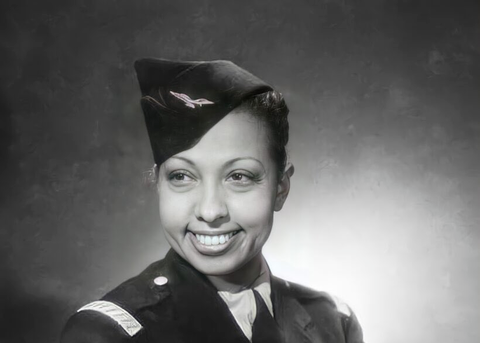 Studio Harcourt, Wikimedia Commons
Studio Harcourt, Wikimedia Commons
38. She Had A Famous Girlfriend
Frida Kahlo is perhaps the most famous of Baker’s (rumored) female lovers. The Mexican artist met Baker on a 1939 visit to Paris. Awkwardly, Kahlo’s possessive husband was traveling with his wife at the time. Don't hate the player, Diego, hate the game.
39. She Wrote A Scandalous Novel
If the song, "J'ai Deux Amours" didn't make it clear, Baker loved a double meaning. So it's no surprise that when she dipped her toe into the literary world in 1931, Baker decided to write an extravagant allegory. Her controversial novella, Mon Sang Dans Tes Veines ("My Blood In Your Veins") used a melodramatic love story to argue that being prejudiced against people of other races would only make someone miserable. If you want more details, you can read a summary of the intense plot line right here.
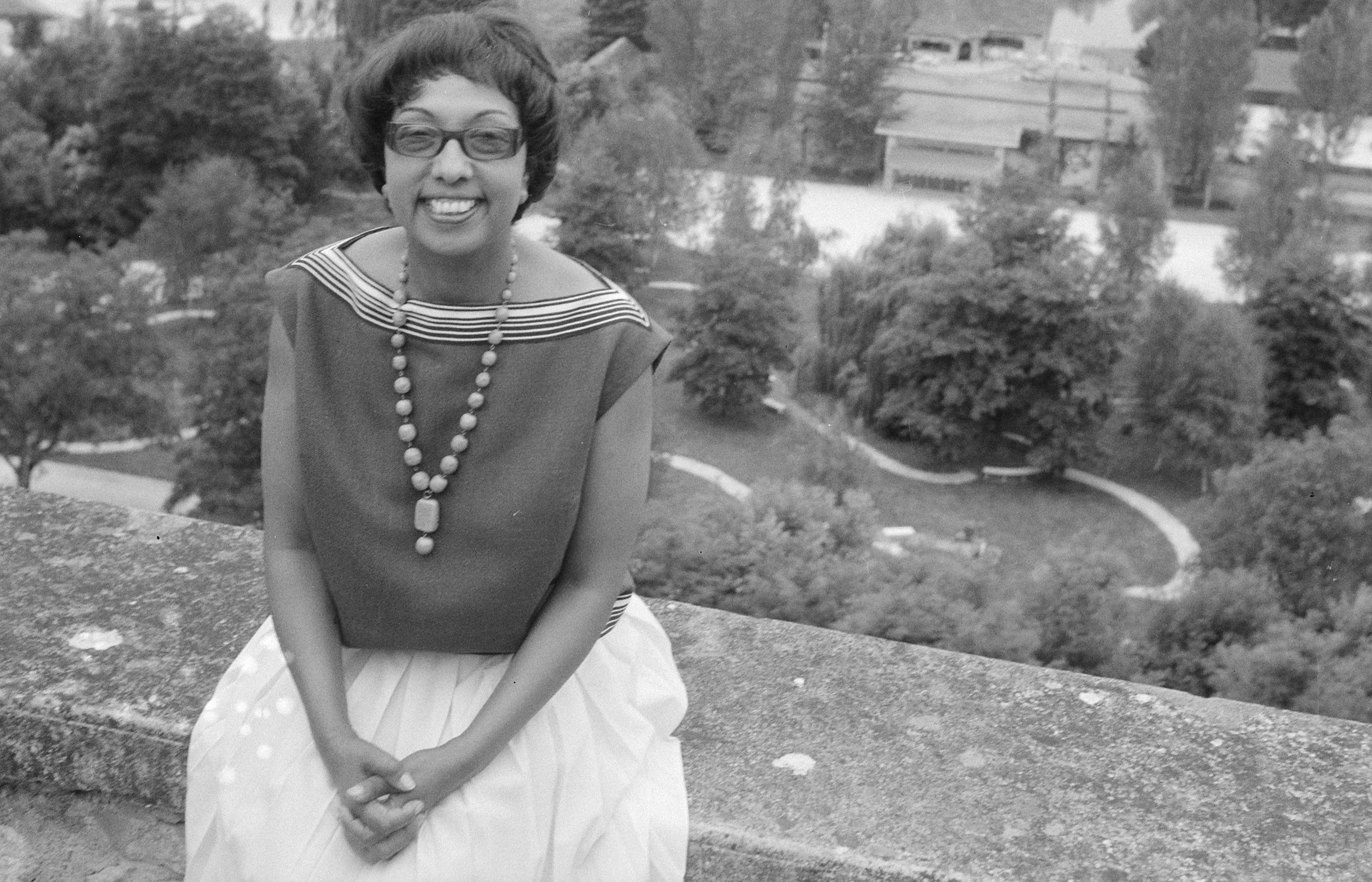 Jack de Nijs for Anefo, Wikimedia Commons
Jack de Nijs for Anefo, Wikimedia Commons
40. She Embarked On A Torrid Affair
Josephine Baker was both a lover and a fighter, and she seemed to have endless energy on both fronts. Amid all her flirtations with women and marriages to men, Baker still found time to strike up a passionate affair with her manager, Giuseppe Pepito Abatino. He passed himself off as a noble count but in reality, he was just a former stonemason who had the hots for his client. Abatino was so infatuated with Baker that he proposed marriage. While they never made it down the aisle, Baker and Abatino had a long, passionate affair.
41. America Hated Her
Under Abatino’s management (among other things), Baker’s career and public image took off in Europe. The duo even opened a popular nightclub in Josephine's named, Chez Josephine. In her home country of America, however, people were less receptive and even threatened by her challenging act. Time magazine outright called her insulting names while other publications said her voice was “too-thin” to fill real venues like the Winter Garden Theater.
42. Discrimination Reared Its Ugly Head
Despite Baker's haters, Europe's preeminent burlesque star returned to the USA in 1936 to become the first Black woman to lead the famous Ziegfeld Follies. Baker's historic performance should have been a highlight in her career, but discriminatory reviewers felt differently. They ran Baker's name into the mud, calling her "bucktooth," among other cruel names that we won't repeat. Sadly, that was nothing compared to Baker's next tragedy.
43. She Endured A Tremendous Loss
After Baker's brutal reception in the USA, she returned to France, only to find even worse news awaiting her arrival. Her lover and manager Abatino had passed. Wanting his beloved Baker to enjoy her time in America, Abatino didn't tell her that he was battling cancer. Unfortunately, by the time she got back to France, the disease had ended Abatino's life.
44. Grief Made Her A Dare Devil
Devastated by the loss of Abatino, Baker sought comfort in the arms of another lover. She married the wealthy Frenchman Jean Lion in 1937 and quickly took up several daredevil hobbies as ways to cope with her grief. Baker learned to drive a car, ride a horse, and even fly her new beau's plane.
45. She Kept Wild Company
During Baker's time in Paris, she cultivated more than a few strange interests, but her most notorious was her collection of exotic and eccentric pets. A goat named Toutoute lived right above the dressing room of her nightclub while Albert, Baker’s beloved pet pig, ate scraps from her nightclub’s kitchen. It turned out to be such a robust diet that the kitchen door had to be broken down in order to let the singer’s prized pig roam freely. Sadly, Josephine's sweet gestures had dark roots.
46. Her Kindness Had Tragic Roots
When Josephine was a young girl, she worked for some cruel people. One of her bosses, a white woman, even burned Baker's hands when she made innocent mistakes. Because of this, Baker began to distrust people and instead spend her time with animals, especially injured creatures. Since she wasn't allowed to befriend her boss' children, young Baker would eat lunch with a disabled dog named Three Legs.
47. Her Show Must Go On
In 1941, Baker suffered a horrific miscarriage that ended in a complete hysterectomy and treatment for dangerous infections like peritonitis and septicemia. At the time, Baker's fans worried that the chanteuse might die, but Baker was a fighter. Rising above her brutalized health, the singer managed to pull herself together to tour across North Africa—and of course, to covertly continue her espionage work.
48. She Endured Prejudice
When Baker returned to America in the 1950s, she remembered why she'd left. As though the discrimination in France wasn't bad enough, Baker faced an even harsher society back in the United States. In a particularly humiliating example of the kind of cruel treatment Baker faced, a whopping 36 hotels refused to accommodate Baker due to discrimination.
49. Men Were Intimidated By Her Power
When it came to Baker's romantic life, she had a full schedule, but not everyone could handle a woman like "The Black Pearl Of Paris". For example, in 1925, she and the Belgian writer Georges Simenon were the hot new pair. But things ended when Simenon began to feel insecure about Baker's wealth and fame. Even though she was "tantalizing," Simenon didn't want to be "Mr. Baker" Okay dude, your loss!
50. She Had A Famous BFF
Grace Kelly and Josephine Baker were close buddies. Together since 1951, the friendship began after Kelly stood up for Baker at the famous Stork Club, where the servers had refused to serve the black entertainer due to her race. The white actress angrily stormed out of the club in a show of solidarity for Baker. Kelly vowed to never patronize the Stork Club again.
51. She Made A Stand
Baker didn't find discrimination just at hotels and restaurants: It was right there in front of her at her own segregated cabaret shows. White men and women paid handsome sums to see the beautiful, exotic Baker on stage—but only if her Black brothers and sisters were separated from them. In response, Baker refused to perform for segregated audiences, and forced many clubs to change their implicit or explicit policies.
52. She Was A Knock-Out
In her prime, Josephine Baker gave superstars like Mary Pickford and Gloria Swanson a run for their money. The three performers were the most photographed women in the entire world.
53. She Had A Way With Words
Baker often spoke eloquently about discrimination, but one of her quotes is especially prescient. The rebellious performance once said, "Surely the day will come when colour means nothing more than the skin tone, when religion is seen uniquely as a way to speak one’s soul; when birth places have the weight of a throw of the dice and all men are born free, when understanding breeds love and brotherhood".
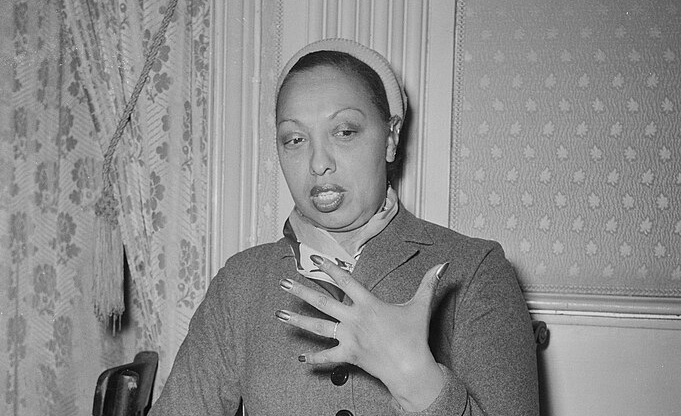 Daan Noske / Anefo, Wikimedia Commons
Daan Noske / Anefo, Wikimedia Commons
54. She Refused To Compromise
Baker famously refused to perform in segregated venues in the US, even turning down $10,000 from The Stork Club, a Miami venue that asked her to make an exception. After Baker's firm denial, the club eventually bent down to her demands and hosted their first desegregated show. The entire city of Las Vegas began to integrate its audiences at her request.
55. Everyone Wanted To Be Her Man
It’s said that Josephine Baker received more than 1,500 proposals from men over the course of her life. That makes it all the more impressive that she got married only four times.
56. She Wasn't Perfect
No one's perfect, including Josephine Baker. Despite her strong track record of being compassionate to people excluded from mainstream society, she had a big blind spot. Baker went on the record saying that she was terrified of maimed men. Justifiably, the French French Association of Mutilated Veterans wasn't pleased about her insensitive remarks and even filed a suit against her.
57. Harlem Welcomed Her Back
Baker’s 1951 homecoming to Harlem was the biggest event of the decade. Her show was sold-out and got rave reviews, reaching its apex with a parade in her honor that was attended by 100,000 people. To no one’s surprise, she won that year’s NAACP “Woman of the Year” award.
58. But She Had Enemies
The singer’s return to the US was cut short due to a mix of discrimination, anti-Communism, and bad hospitality. Baker publicly denounced the conservative journalist Walter Winchell, who staunchly supported segregation. In return, Winchell did the worst thing possible, considering the sympathies of the time. He accused Baker of being a Communist sympathizer. The consequences of his words were equal parts swift and brutal.
59. She Was Sent Packing
Winchell's accusation was an incredibly serious charge during the paranoid "Red Scare" era. The American people were so perturbed that they hit Baker where it hurt. They revoked Baker's work visa and forced her to return to France. Rubbing salt in the wound, the USA barred Baker from re-entering the country for nearly a decade after Winchell pointed the finger.
60. She Went Too Far
On June 3, 1947, Baker walked down the aisle for the fourth and final time when she wed a French composer and orchestra leader named Jo Bouillion. But before you go getting weepy, this wasn't Baker's last set of "I do"s before she found her one true love. Sadly, she and Bouillon divorced after 17 years of marriage in 1961, shortly after Baker adopted her 12th child.
61. She Finally Found Love
When Baker was finally allowed back into the USA, the country made up for its prior sins. It was in America that Baker struck up a relationship with an artist named Robert Brady. In her 70s, Baker finally found her one true love. She and Brady never officially got married, but they did privately exchange vows in a Mexican church.
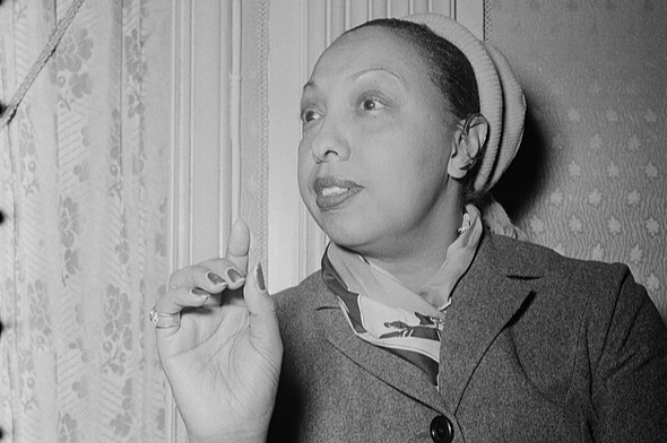 Daan Noske / Anefo, Wikimedia Commons
Daan Noske / Anefo, Wikimedia Commons
62. She Hid Her Beau
But why didn't Baker, never averse to a trip down the aisle, wed Brady in public? The answer is a little sad: She knew that her track record with relationships wasn't the best and worried that the press would make fun of her new flame. Just this once, Baker wanted to keep her private life to herself.
63. She Gave Angelina Jolie A Run For Her Money
Beating the likes of Brangelina by decades, Baker spent her 40s adopting 12 foster kids of many ethnicities and nationalities. She called her diverse family “The Rainbow Tribe" and for years, the multi-cultural kids lived in southern France alongside Baker's trademark exotic pets including cheetahs and monkeys. On the surface, the Rainbow Tribe seemed like an idyllic brood but after the children grew up, they told a different story.
64. Her Family Proved A Point
Why did Baker adopt so many kids? She was out to prove that “children of different ethnicities and religions could still be brothers". The Rainbow Tribe lived on her estate of hotels, farms, and rides. Baker would charge admission to visitors who wanted to come in and watch her children play and sing. But her son Jean-Claude Baker believed there was a darker, more cynical reason for her generosity.
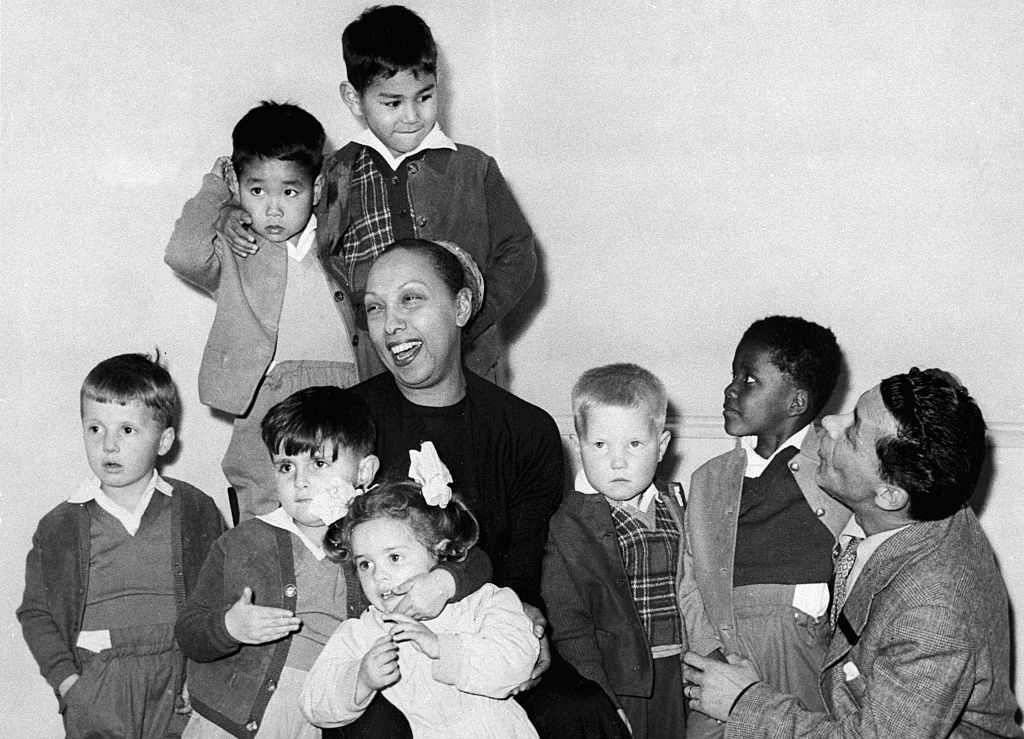
65. But Her Children Weren't Always Happy
In Jean-Claude Baker's skeptical words, Baker didn't want a child, what she really wanted was "a doll". However, a softer take on the Rainbow Tribe's “quirky” upbringing comes from Baker's Japanese son, Akio. He gently described Baker as “a great artist, and she was our mother. Mothers make mistakes. Nobody’s perfect".
66. Her Son Spilled The Tea
Ah, Jean-Claude. Everyone in the world might have loved his mom, but he didn't quite see the appeal. As an adult, he published a jaw-dropping exposé of Josephine Baker and in it, he did not hold back about Mommie Dearest. According to Jean-Claude, Baker would open the door without any clothes and disliked her rival icon Marlene Dietrich, who she called a "German cow". But Jean-Claude's most troubling revelation is this: In his eyes, Baker would step on anyone "to get where she wanted to get". Yikes.
67. She Defied Convention
Despite her many marriages and her numerous children, Baker never mixed up the two. She had no biological children from any of her four husbands. Because of Baker's hysterectomy, all of her children were adopted.
68. She Hit Hard Times
Despite all Baker's success, she and her Rainbow Tribe fell on such hard financial times that in 1969, Baker had to give her precious home up to her creditors. This is where the dark side of fame becomes hard to ignore: When anyone else hits rock bottom, it's usually a fairly private moment, but not for Josephine Baker. When she lost her home, photographers captured a heartbreaking photo of Baker locked outside in the rain, staring forlornly into her bleak future.
69. She Had Friends In High Places
When Baker's dear friend Grace Kelly heard that Baker was in trouble, she immediately stepped in to help. The Princess of Monaco did her best to smooth things over with the creditors, but to no avail. Baker ended up losing her beloved château, but even then, Kelly refused to let her dear friend starve. Princess Grace took care of Baker, arranging for her to have a villa right in Kelly’s adopted country.
70. She Had A Deranged Suitor
According to legend, when Baker was in her prime, a would-be suitor asked her to go steady with him. When Baker declined, he took his own life right at her feet.
71. She Made A Triumphant Comeback
In April 1975, Baker returned to the stage for Josephine a Bobino 1975 to celebrate her 50 years in the spotlight. Her old friend Princess Grace Kelly financed the revue, along with Kelly’s husband Prince Rainier and Jacqueline Kennedy Onassis. Its opening night was an unbridled success. The theater was filled to burst with celebrities like Sophia Loren and Mick Jagger, and when Baker got on stage, the audience greeted her with a standing ovation. Their support moved Baker so much that she began to cry.
72. She Went Out With A Bang
Just four days after performing in Josephine a Bobino 1975, Baker tragically suffered a cerebral hemorrhage in her hotel. When she passed, the legendary performer was surrounded by rave reviews of her final iconic show, with many of her friends saying that Baker passed "of joy". At the time, the legendary chanteuse was just a few months shy of her 70th birthday.
73. The World Grieved Her Loss
Towards the end of her life, Baker converted to Roman Catholicism. Accordingly, she was provided a comprehensive Catholic funeral service at the L'Eglise de la Madeleine, complete with a 21-firearm tribute recognizing her heroism during WWII.20,000 of Baker's fans attended the lavish French funeral, however, when the time came for Baker to be buried, she did not stay in her beloved Paris. Instead, she was interred nearby in her BFF Grace Kelly’s adopted home of Monaco.
74. Her Legacy Lives On
Baker's legacy lives on even to this day. Performers like Beyoncé Knowles, Laverne Cox, and Diana Ross have paid homage to Baker through their own banana skirts. Plus, in 2003, actress Angelina Jolie admitted that she modelled her own diverse family on Josephine Baker’s. In her words, Baker was “a model for the multiracial, multi-national family she was beginning to create through adoption". Now that’s a committed fan.
75. Her Message Still Resonates
But the biggest way that Baker lives on is through her support of justice. It seems fitting to end this article with one of her trademark quotes: “You know, friends, that I do not lie to you when I tell you I have walked into the palaces of kings and queens and into the houses of presidents. And much more. But I could not walk into a hotel in America and get a cup of coffee, and that made me mad. And when I get mad, you know that I open my big mouth. And then look out, ‘cause when Josephine opens her mouth, they hear it all over the world". They certainly did. Rest in peace to an absolute icon.
Sources: 1, 2, 3, 4, 5, 6, 7, 8, 9, 10, 11, 12, 13, 14, 15, 16, 17, 18, 19, 20, 21, 22

